Google Glass is a snazzy set of specs that will part the Red Sea if you tap it from the right angle. It aims to fuse smartphones and computers into a hands-free user experience more pleasurable than sex, religion, and world domination combined.
Glass is not yet on the market, but the news of its existence cut a hew through Mountain View with the strident fife of an unpaid piper wooing unsuspecting kids into a dark cave. It inspired Google co-founder Sergey Brin to publicly announce that he felt less male with the thick tools that came before. Some wondered why Brin didn’t just hold hard to his smartphone and slam down shots every Friday night like the rest of America. But when your net worth is $23 billion, different rules apply.
Brin was good enough to describe his new instrument to the Wall Street Journal last September:
They are, uh, a new form of computing, uh, that’s designed to really free you. So you’re hands-free. Uh, you know, your eyes are free. Your ears are free. Uh, and yet you can do, uh, many of the things that you might typically expect a computer or a mobile device to do. Uh, whether it’s taking pictures or video or getting messages or navigation. Uh, all those things are available.
The glasses are not now available to the general public, but Google informed The Verge a few weeks ago that the specs would cost “less than $1,500” when hitting the stores, which is believed to be sometime next year. Last month, Google offered an Explorer Program for “bold, creative individuals” who longed to test the device. Some people wearing early Glass prototypes began making bold and creative appearances in San Francisco Bay Area bars and restaurants, keen on “exploring” territory already inhabited by humble regulars. They were not received with the bountiful benisons that their algorithms predicted. As a man named David Yee put it on Twitter:
I put forth the modest proposition that Google Glass, conjured and constructed and conceived only in terms of “cool” and propped up by ostensible “journalists” who have never thought to question Mr. Brin’s brilliant PR, could pose more problems to our world than any digital invention we have seen in some time. Contrary to Mr. Brin’s suggestions, his device will not “free” us. It will quite possibly destroy several vital qualities of life we now take for granted, preying upon kind and decent and hardworking people who are still playing pickup from an economic blitzkrieg in which they had no power, little hope, and no control. One would think that a man born in Moscow under Brezhnev would grasp the cruel irony of being directly responsible for an entirely new set of encroachments upon freedom and human possibility. On the other hand, great hills of money often move mountains in other ranges.
Here are thirty-five arguments against Google Glass:
It could destroy whatever shreds of privacy we have left.
This is the greatest criticism against Google Glass. So let’s look at this in terms of law. If present terms are not refashioned by Congress in the next year to meet the realities of 2014 digital life, Google may be helped by current law, which may not protect the American public from the “electronic communications” of video recorded from a pair of glasses and uploaded to Google. The Stored Communications Act, drafted and legislated in 1986, was put into place well before webmail, social media, and cloud computing were realities. And until the SCA is updated by legislators to reflect today’s world, it remains possible that a Google Glass video — if it is defined as an “electronic communication service” comparable to email — will remain unprotected because of how the SCA now defines “electronic storage.” (See these recent cases for the present state of affairs, including Jennings v. Jennings, in which the South Carolina Supreme Court ruled that accessing another person’s email doesn’t count as a violation — even when the other person correctly guesses the email account’s security questions. But see also Viacom Int’l, Inc. v. YouTube, Inc., 253 F.R.D. 256, 258, 264 (S.D.N.Y. 2008), in which a court defined YouTube as “remote computing service” — the counterpart to “electronic communication service” — without supplying a reason.)
Metadata may create more headaches. As Mark Hurst has suggested, not only is it likely that the Glass videos will be uploaded to Google’s server, but “all of the indexing, tagging, and storage could happen without the Google Glass user even requesting it.” It’s possible that Google could introduce a service in which privacy could turn into a lucrative sideline where someone pays a premium not to be videotaped or photographed or indexed. Imagine a scenario in which Google, having rejiggered our present expectations of privacy, is further allowed to profit from the amended definition. Having already disrupted cities and widened the digital divide with the infamous Google Bus, this ungentle giant is poised to shatter our world further with Glass.
ARGUMENT TWO
It will turn the United States into a surveillance state.
Forbes‘s Kashmir Hill was the first to observe this. But as seen in the above photograph, taken from the Youth Ball on Obama’s Inauguration Day on January 20, 2009, we were already on our way there. In just under six years, an entire generation has trained itself to take a photo with a smartphone rather than stand awestruck before mighty events unfolding.
But what if you could record and save every moment? And what if all this information could be used to incriminate other people? As Hill pointed out, Google Glass will deracinate the Young Turk’s privileged regret of not being able to jerk out her phone in time to capture a moment once called Kodak. Soon, with a simple voice command and a pair of glasses, the Young Turk can saunter up to two regular people having loud sex in a car, memorialize this private moment through video, and upload it to the cloud in an instant. Who cares if the video goes viral and these people lose their jobs? Who cares if you live in a small town where homophobia is rampant and the two taped people share the same gender? For many using Google Glass, this shutterbug roundelay will be about the lulz. But the lulz won’t sting nearly as much as the more disturbing prospect of civvies ratting out neighbors they don’t want to talk to sinks into our national psyche. McCarthyism will feel charmingly quaint by comparison. A proud nation of incognizant spies won’t have any trouble filling up the information coffers inside that massive data center that the NSA has almost finished constructing in Utah.
It will hold more people needlessly accountable for easily pardonable activities.
According to a CareerBuilder survey last year, nearly two in five companies used social networking sites to screen potential employees. Drinking, using drugs, and posting “provocative” or “inappropriate” material were more serious reasons not to hire someone than clearly vocational concerns such as poor communication skills and badmouthing former employers. In 2011, a Georgia teacher was fired for posting a Facebook photo. The crime? Holding a glass of beer in one hand and a glass of wine in the other. So what will happen when Glass lathers up more videos offering more rabid opportunities for vengeful people to be offended? Will an entire subculture emerge in which creeps sift through a person’s Google Glass oeuvre looking for the one soundbyte that will go viral and destroy that person’s reputation? As more technology enters our lives, we have become more beholden to an unreasonable ideal. We’ve seen how employers humiliate prospective employees with endless interviews because they crave perfection, but a culture that does not allow people to make mistakes cannot possibly know and feel what it is to be alive.
It is remarkably easy to steal a pair of glasses.
Just ask the guy who stole Jonathan Franzen’s specs three years ago. We have seen how laptops, smartphones, and tablets were pilfered prolifically during early adoption. (In fact, nearly half of all robberies in New York during 2011 involved smartphones and tablets.) But consider how effortless it is to snatch a pair of glasses from a person’s head. If the Google Glass user is lost in the moist miasma of a fresh fix, then there’s a good chance that his perspective will be quite removed from what’s happening in the real world. This allows the criminal to grab the glasses and run, with little time for the Google Glass user to acclimate to unlayered reality. By the time the Google Glass user has deduced that he has been fleeced of his high-end eyewear, the criminal has greatly outpaced him.
Because the specs are worn on the outside of a highly visible part of the body, Google Glass is more vulnerable to theft than a purse or a wallet or a smartphone. And if the Google Glass user has shared considerable personal information, then the prospects for identity theft are quite promising. Once criminals work out the kinks, this type of crime could prove more lucrative and high-speed than credit card skimming. And if someone repeatedly has her Google Glass specs stolen, can Google continue to take the financial hit of replacing the glasses? With Google Glass retailing close to $1,500, this may open up a new insurance business which extorts the Glass user. Will certain neighborhoods become too “high-risk” for prospective Glass applicants? Mr. Brin’s price point doesn’t exactly signal a commitment to egalitarianism.
So what of pragmatic security measures? I highly doubt that the myopic utopians basking in Glass’s technological empowerment will take kindly to a vulgar chain attached to the specs. It could remind them of a greasy key with a heavy brick unlocking a dingy gas station restroom. What we do know is this: in its present form, Google Glass will be as easy to pluck from a stranger’s noggin as a clown nose.
(It’s also possible that Glass will include some form of remote administration to protect against threat. But this may also create problems. See Argument Twenty-Two.)
ARGUMENT FIVE
It gives Google far more personal information than it needs to know.
According to Google’s privacy policy, this is what Google now collects from you:
- details of how you used our service, such as your search queries
- telephony log information like your phone number, calling-party number, forwarding numbers, time and date of calls, duration of calls, SMS routing information and types of calls
- IP address
- device event information such as crashes, system activity, hardware settings, browser type, browser language, the date and time of your request and referral URL
- cookies that may uniquely identify your browser or your Google Account
- location information
- device information
- any personal information you give Google (emphasis added)
Now this is just what Google gets from browsers. And this is the list that arrived just after Google changed its privacy policy in March 2012. The aim was to collect deeper information about its more than 1 billion users. There was, of course, no way to prevent Google from combining the personal data it collected through the many services offered through many devices. Much of this, of course, has been used to recalibrate advertising. But if Google has more data it can mine from you (that is, personal information that you “give” through Glass), and the Google Glass user is constantly recording her life and adding heaps of personal info that advertisers will want to know about, a Google user’s personal dossier will become highly cultivated indeed.
Google has a very poor history of sympathizing with people who don’t want their personal information shared. Forget that these users have very principled reasons for staying anonymous. But as far as Google is concerned, quiet lives don’t contribute to the hard profit line. In December 2009, then Google CEO Eric Schmidt barked to CNBC, “If you have something that you don’t want anyone to know, maybe you shouldn’t be doing it in the first place.” If this remains Google’s philosophy in 2013 (without Schmidt), then will this corporate sentiment apply to Google Glass?
We are dealing with a company that casually collects as much personal information as it can about its users without always informing them. Look no further than this FCC report from last year (PDF), which describes how Google’s Street View vehicles picked up “payload” data — that is, email, text messages, Internet usage history, and other personal information — between May 2007 and May 2010 while performing “location-based services.” Not only did Google collect 200 gigabytes of payload data between January 2008 and April 2010, but Google transferred it all to a data center in Oregon. (This privacy breach case was recently settled for the paltry sum of $7 million.)
So how much payload data will Google Glass collect? And what will the user agree to when signing up for the headset? If data limit isn’t an issue and Google employees are incapable of respecting privacy even on a subconscious level, what brave new metadata will be fed into Google’s data centers?
ARGUMENT SIX
It will open new possibilities for online sexual extortion.
Last year, we were introduced to Hunter Moore, declared “The Most Hated Man on the Internet” by Rolling Stone for publishing compromising photos sent in by embittered ex-lovers. Moore would humiliate the women in these images by posting the full name, city of residence, profession, and social media profile. He deemed what he did “revenge porn.” At the height of Moore’s success, his website earned him $10,000 in monthly ad revenue. There was also the vile Craig Brittain, who collected naked pictures of ordinary people and charged $250 to remove the photos. These are two very public examples of online sexual extortion, an atavistic practice which has caused countless women to be harassed. Consider the sextortionist who blackmailed 350 women to strip through Skype.
Contrary to Jeff Jarvis’s risible suggestion that humanity does not contain “uncivilized perverts,” all this awful behavior brimmed to the top of the cruel cauldron with the technology we have in place right now. Will Google Glass’s easy and portable setup encourage some of these malicious misogynists to leave their homes and seek out these women in the streets? Thanks to Google Glass, tomorrow’s Hunter Moores and Craig Brittains will innovate new mobile methods ensuring that more women are photographed, videotaped, extorted, harassed, and brutalized.
ARGUMENT SEVEN
It may increase violence.
On March 8, 2013, GeekWire reported on a Seattle bar that became the first establishment to ban Google Glass. It started with a Facebook message that read: “For the record, The 5 Point is the first Seattle business to ban in advance Google Glasses. And ass kickings will be encouraged for violators.” While the “ass kickings” aspect of this message was clearly tongue-in-cheek, it does highlight one little discussed consequence of sticking an unwanted camera in someone’s face: you may get your ass beat.
The kind of violence we’re considering goes well beyond Justin Beiber threatening a photographer or Alec Baldwin getting into another paparazzi rumble. As we continue an ongoing dialogue about First Amendment rights and what photographers can and cannot shoot, cameras mounted on specs could lead to a greater distrust of the photographic form. It could lead to more assaults directed at legitimate photographers who are trying to document history. Street photographers have developed well-honed rules that take into account respect for subjects. (See also Argument Fifteen.) But when anybody with Google Glass styles himself a “photographer,” can these inexperienced types be counted on to display the same finesse? If these new “photographers” invade the privacy of subjects, will their subjects remain calm and nonviolent?
ARGUMENT EIGHT
It will discourage personal risk.
In a 2008 study, three Dutch researchers demonstrated that security cameras triggered approval-seeking behaviors. The mere presence of cameras was enough to suggest some omniscience. Another experiment in 2011 revealed how cameras discouraged 86 students from cheating. These two studies relied on clearly delineated cameras. But it does leave us wondering how risk or a free-flowing conversation will be actively discouraged when a person enters a restaurant, only to find four people sitting at tables wearing Google glasses, all recording the world around them.
(Argument Sixteen also relates to the issue of risk, discussing how artists and performers could be held more accountable for what “offends.”)
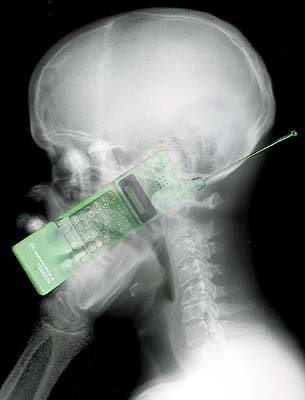
ARGUMENT NINE
We have no idea what health problems Glass will create.
Last July, Cult of Android revealed that the HTC Evo 4G, the Apple 4S, and the Blackberry Bold all exposed users to an SAR (Specific Absorption Rate) level at well over 1 W/kg. The FCC has set the maximum SAR at 1.6 W/kg. Google recently filed documents with the FCC, revealing a 1.34 W/kg SAR for Project Glass. That’s more radiation than the iPhone 4S. But unlike the smartphone, which is only placed near the head when answering a call, Project Glass will be constantly on the head. Which means that Glass users will be exposed to more constant radiation. Additionally, according to healthcare advocate Camilla Rees, companies often report SAR values differ from the real number. Will Google Glass lead to an uptick in brain cancer? In 2011, a World Health Organization report (PDF) suggested one remedy to the carcinogenic risks from smartphones: “it is important to take pragmatic measures to reduce exposure such as hands-free devices or texting.” Unfortunately, Google Glass pushes “hands-free” back to the head.
ARGUMENT TEN
It may increase violations of doctor-patient confidentiality and attorney-client privilege.
The U.S. Department of Health and Human Services maintains a list of confidentiality breaches which affect 500 or more individuals. There are presently 556 records of large scale breaches. Countless thousands have had private health information disseminated beyond the seemingly secure confines of a hospital. These breaches, in turn, cost healthcare providers money. While the HHS doesn’t lag behind tech as much as Congress does with the SCA, it has only just introduced measures four months ago to protect patients when using mobile devices. Present research indicates that only 44% of healthcare providers encrypt their devices. This leaves one to wonder what fresh hell Google Glass will unleash. Will doctors become hooked on Glass in the way that they are presently reliant on smartphones? And, if so, will the images and records that doctors collect be secure enough for the HHS? Can Google really be entrusted to protect all this data?
And then there’s attorney-client privilege. In 2009, an attorney exchanged text messages with his deponent client. The subsequent case, Ngai v. Old Navy, ruled that surreptitious text messages were not privileged under Federal Rule of Civil Procedure 30. This does lead one to wonder if an attorney who is wearing Google Glass during a deposition will be subject to similar disclosures of “unprivileged” communication.
ARGUMENT ELEVEN
It could be hacked.
In 2010, Google was hit with a highly sophisticated hacking attack from China. The hackers stole intellectual property, scoured source code, and peered into the Gmail accounts of human rights activists. Google never provided details on how Operation Aurora had occurred. And it’s safe to say that recent attacks in the past month from China demonstrate that the attacks are far from over.
But nobody appears particularly concerned about what Google will do to encrypt its new tool from vicious hackers. To get a sense of just how much bad security can smash a person’s digital life, consider the horrors endured by journalist Mat Honan:
I bought into the Apple account system originally to buy songs at 99 cents a pop, and over the years that same ID has evolved into a single point of entry that controls my phones, tablets, computers and data-driven life. With this AppleID, someone can make thousands of dollars of purchases in an instant, or do damage at a cost that you can’t put a price on.
Given how Google has erected an eclectic empire on the bones of search, what’s not to suggest that something as ostensibly straightforward as Glass will bulge with similar spectacle? Will some future Mat Honan find a video simulacrum of himself constructed from long pulls at a Google Glass feed? And will he will have to spend years of his life contesting it? Hacking typically happens because we unthinkingly keep devices on without considering how they can be invaded. As “virtualization evangelist” Mike Foley expressed in a blog post about data sensitivity, “What if I was streaming my Glass feed via a MiFi?” It’s a good question. And we haven’t even considered how News of the World-style phone hacking could develop with these new devices.
ARGUMENT TWELVE
It will discourage anonymity.
In an August 2011 blog post, Danah Boyd called “real name” policies an abuse of power. Decrying guidelines in effect at Google+, Boyd observed that vulnerable people or political dissidents were clearly at risk through mandatory outing:
What’s at stake is people’s right to protect themselves, their right to actually maintain a form of control that gives them safety. If companies like Facebook and Google are actually committed to the safety of its users, they need to take these complaints seriously.
In the aftermath of the nymwars, Google+’s policy is still highly prejudicial against pseudonyms. The only way someone can obtain a pseudonymous Google+ account is “by providing links to other social networking sites, news articles, or official documents in which you are referred to by this name.” And for someone with limited Internet access in a country with a suppressive regime or for someone who fears for her life, this policy is a needless hardship for someone hoping to pass along invaluable information to the outside world.
Why is this important? Because, in the past year, Google has been increasingly aggressive in directing users to the Google+ page. As The Wall Street Journal reported in January, some users may not be fully aware of how much Google is cross-referencing:
Sam Ford, a 26-year-old Navy petty officer, says he signed up for Google+ on his smartphone because it would let him automatically upload new photos to a Google+ folder—one that he kept private. Later, he says, he was surprised to see that his Google+ profile page—which includes his name—was tied to a software review that he wrote recently on the Google Play online store.
So Google wants to out you. It wants to make it very difficult for you to procure an anonymous account. And it wants everything you do on any of its devices — on your computer, on your smartphone, on your Google Glass — to be united publicly for anyone with enough grave tenacity to see. And even though anonymous speech is protected by the First Amendment, if you don’t abide by these terms, it’s Google’s way or the highway:
We understand that your identity on Google+ is important to you, and our Name Policy may not be for everyone at this time.
ARGUMENT THIRTEEN
It isn’t distinct enough from the body.
People were permissive of smartphones and the cameras that came before because these tools were clearly distinguishable from the body. For all my plaints leveled in Argument Two about the United States turning into a surveillance state, we can at least see that the Youth Ball partygoers are photographing the Presidential dais with discrete devices. But if we’re going to wear something, shouldn’t it communicate something back to other people? Is this not the purpose of fashion?
Enter Kate Hartman, an eccentric and affable artist and educator who has been investigating the issue of “wearable communication.” Hartman has proffered such innovations as the Talk to Yourself Hat, in which the wearer speaks into one end of a long tube leading back to his ears, and The Boundary Belt:
The Boundary Belt is provides the wearer with the ability to produce a spontaneous boundary marker in the event of an ambiguous or misconstrued situation. With a press of the emergency release button (located on the belt), the boundary is immediately launched, clearly indicating to the approaching party where they are or are not welcome.
So if Google is going to encourage rampant alienation and elitism, there seems to me a fundamental design flaw. Wearable communication needs to make a distinct and highly visible impression to count. There’s still hope, of course, that Google will equip later versions of Glass with light weaponry, turning these chichi specs into ground-level drones that will massacre anyone who hasn’t yet swallowed the Kool-Aid. Should not Glass become a fashion statement that kills on the platform? If we’re going to push technology to the limit, why not take the phrase “killer app” more literally?
ARGUMENT FOURTEEN
It could give the police far more details about you than you can possibly know.
A few weeks ago, the ACLU published a lengthy list of what Immigrations and Customs Enforcement officials were able to extract from a suspect’s smartphone. The list included call activity, phone book directory information, all stored voicemails and text messages, apps, several passwords, and 659 geolocation points. Two years ago, the Michigan State Police were reportedly using Cellebrite devices to copy the entire contents of a smartphone in two minutes. (The MSP refuted the ACLU’s claims.) But as the ACLU revealed in April 2012, approximately 200 law enforcement agencies were tracking cell phones without a warrant. (The ACLU also offers this helpful map to determine whether or not your local police department is really into warrantless cell phone tracking.)
If police departments are collecting a smartphone’s geolocation points (or other data on your phone), then what is to stop the cops from confiscating every single video that you ever made with Google Glass? (For that matter, what is to prevent Google+ from offering some Glass Archive answer to Facebook’s Graph Search?) How long will Google archive videos or make them accessible through Glass? That drunken sex video you made while you were wearing Glass could be used to incriminate your character or, at the very least, give the police some glimpses of your posterior you never thought they would see.
ARGUMENT FIFTEEN
It will discourage kindness and respect.
Sometime last year, an unidentified man began taking videos of people around Seattle without their permission and posting this to YouTube. He became known as “The Creepy Cameraman,” although he later adopted the moniker “Surveillance Camera Man.”
“I’m taking a video,” says the mumbling voice behind the camera when people ask why he’s taping them. But this is the only reason he offers as he approaches people with his camera as they are trying to have private conversations or enjoy their meals or have a quiet moment after a long day of toil. Surveillance Camera Man could be performance art. It could be some kid’s idea of Candid Camera. Whatever the case, it’s one of the most mordant commentaries on 21st century life I’ve seen in the last six months.
Surveillance Camera Man’s justification is that, because various establishments have surveillance cameras, his ground-level camera isn’t any different. And to get a sense of how dehumanized Surveillance Camera Man is (or, at least, presents himself to be), watch in the above video as he films a young woman screaming as she is being arrested near the 2:19 mark. He doesn’t ask if the young woman is okay. The young woman is there merely for his photographic non-purpose.
If this isn’t a harbinger of what Google Glass could serve up as a parallel to Kitty Genovese, I don’t know what is. We’ve already seen soldiers posing before humiliated and tortured prisoners with the Abu Ghraib photos. If, as Susan Sontag argued in one of her last essays, “the photographs are us” and brutality has come to dominate the visual and digital culture of American life, then what will happen when those who surrender kindness and respect put on a pair of glasses?
ARGUMENT SIXTEEN
Artists will be held more accountable for material that “offends.”
Last year, Patton Oswalt was called an asshole because he deigned to call out an audience member who was taping one of his new routines with her cameraphone. Despite the fact that Oswalt asked her politely to not tape his routine with her phone, she continued to do so. As Oswalt wrote:
For starters, whatever camera phone she was using had a piercing, distracting light on it which she merrily aimed right into my eye.
Worse, here’s when she started taping: halfway through a new, longer joke that I’m working on — a very embarrassing recollection from my younger years that I’m very nervous about performing and still very unsure of how to unspool. This was only the fourth time I’ve ever performed it, as well as the fourth time I’ve ever admitted this incident in public. So it still feels like a very nervy high wire walk for me. There’s times when I lose the audience and have to get them back, freeze up, and wonder if I shouldn’t have just kept this whole incident to myself. I’m walking into new territory with this one, and it’s scary and I feel very raw and dry-mouthed when I do it.
Oswalt would own up to not keeping his cool. On the other hand, if risk is essential to expression and creativity, isn’t strong opposition against those who wish to hinder creative progress the sanest possible response? What effect will Google Glass have on standup comedians or other artists? Will the performing arts deliquesce into some tepid shell of its former self because all on stage can be recorded at all times? If every moment we have is taped with Google Glass, and we know that we are always being watched, how will future artists take risks? (See also Argument Eight.) And how can art build and evolve when risk and originality is discouraged?
ARGUMENT SEVENTEEN
It may kill off what remains of the moviegoing experience.
First, there were talkers. Then smartphones disrupted the moviegoing experience. It is now almost impossible to go to a movie theater (save for the Alamo Drfthouse) without contending with bright LCDs flashing in the dark because some spectators have a pressing need to text pedantic messages during a gripping scene. Glass will push this obnoxious behavior to new levels. Not only will Glass encourage more talking (after all, some will need to multitask during a movie), but it could lead to an unprecedented wave of piracy.
It’s quite surprising that the MPAA has stayed mum about Google Glass. Because Glass threatens the film industry’s livelihood far more than a smartphone. The entertainment industry has certainly duked it out with Google in recent months over the latter’s failure to crackdown on copyright infringement. But why fight Google on torrents showing up in search results when Google is about to unleash a device that can record a first-run movie projecting on a screen at 720P?
If you’ve attended an all-media screening for an advance movie in recent years, you’ve probably encountered the wands and the peers into reticules and backpacks and the requests to check in your phones because of piracy concerns. But Google Glass will be available with prescription lenses. And what this means — especially if Hollywood wishes to enforce equally stern security at everyday screenings and Glass is the only pair you brought to the theater — is that Glass wearers could be turned away at the door.
ARGUMENT EIGHTEEN
It will create problems with consent.
Twelve states in America legally require that all parties consent to the recording of a telephone call. Most of these state laws were devised when telephones were landline only. (For example, California Penal Code § 632(a), which regulates one party consent for telephone recordings, was legislated in 1967 as the Invasion of Privacy Act.) It never occurred to California state legislators in 1967 that phones would be cordless or that conversations would occur more frequently in cafes and restaurants outside of private corded lines. Much like the Stored Communications Act described in Argument One, this is another example of legislatures simply not acting fast enough to account for rapid technological advancement.
Unfortunately, consent can no longer be regulated in the old way. In the last few months, Google asked users to permit Google Search on Android-powered phones to record audio and take pictures and video with a new update. If Google can do this with the Search app, what’s to stop Google from seizing your consent with Glass?
This goes back to the passive-aggressive ultimatum in Argument Twelve. Google realizes that waiving consent “may not be for everyone at this time.” But since Google is the one unveiling the fancy glasses, it will be more than happy to strip you of rights you didn’t know you had through a sneaky permissions acceptance.
ARGUMENT NINETEEN
Cool places will be outed by boors.
In 2010, Brent Cox wrote an essay for The Awl, bemoaning the notion of publicizing a fried dumpling joint in Chinatown that offered him a fast, delicious, and affordable way to live. Before Foursquare’s constant check-ins became a febrile pastime practiced by wired youth too taken with tagging and before Yelp unleashed a ceaseless horde of would-be Pete Wells types excoriating restaurants, it was a common practice to stay silent about a happening place, lest it be “discovered” by members of the public or be denuded of charm once everybody found out about it. Cox opted to stay mum about the dumplings: a commendable decision for a Brooklynite that deserves several hugs and a few pints of lager. But for every Brent Cox, there are several dozens who will blab.
Oversharing has been thoroughly sent up by Please Rob Me. But Carnegie Mellon researchers have also used Foursquare data to pinpoint a neighborhood’s area and character. So if video information is piled atop geotagging and we continue to encourage a culture in which the Brent Coxes of our world become as rare as polar bears, it’s possible that the quiet establishment you now enjoy won’t, as David Yee tweeted above, be your favorite place anymore.
ARGUMENT TWENTY
It will discourage people from paying attention.
When a small window can pop up anytime with a “more desirable” friend, even as a friend in the real world sits before you trying to have a conversation, we have a problem. We have all experienced the phenomenon of people checking their smartphones for messages in social situations. But when Google Glass creates a new visual overlay with emails, IMs, or video messages from friends during a meal, it ushers in a new wave of continuous partial attention in our culture. The problem with this is that humans aren’t very good at multitasking. (This infographic offers some helpful stats, including the startling figure that only 2% of people can actually multitask effectively.) Multitasking costs us more time and reudUces our productivity by 40%. As Cornell professor Zheng Wang put it, “They seem to be misperceiving the positive feelings they get from multitasking. They are not being more productive – they just feel more emotionally satisfied from their work.”
Glass will probably make many people feel good, which is precisely what one expects from an alluring narcotic. But it will come at the expense of focus. Teachers will contend with distracted students as they pass along essential knowledge, even though learning and multitasking can’t work at the same time. If you’re very good at paying attention to people right now, you may find yourself an unexpected specialist in about five years.
ARGUMENT TWENTY-ONE
It will turn more strangers into stalkers.
One of Glass’s big features is the ability to track another person’s location down to the very foot. This will certainly create additional pressure for people to walk faster or be on time to social engagements, but I’m concerned about how this will encroach on our geographical privacy. Should the world really know our precise coordinates at all times? Don’t we have the right to disappear for a few hours into whatever location we desire without being hassled by some guy we politely endured at the party last Friday and who added us to his Google+ Circle before we could gently let him down? Could those who are barely acquainted with us turn into stalkers?
Before Glass, this was already a very legitimate concern. In 2010, The Daily Beast‘s Lisa Riordan Seville reported on how Foursquare inspired strangers to stalk people. Seville describes how social media strategist Carri Bugbee checked into a restaurant on Foursquare. The hostess came over to Bugbee, telling her that she had a telephone call. Bugbee answered the phone and was greeted with a male voice who found her Foursquare check-in and told her that she shouldn’t use the service because people could learn where she lived. Then he called her a “stupid bitch,” among other insults.
With Google Glass, these casual threats will be ratcheted up, thanks to heightened visual information more available to the public. Not only will a potential stalker be able to track you through your geotags, but he may be able to discover the exact table you are sitting at through another Glass feed. From all this, he could inspire his peers to deliver a full-scale assault in the real world.
After the creep called, Bugbee slept that night with the lights on. What would the creep have done if he had Google Glass to work with?
ARGUMENT TWENTY-TWO
It will create more cyberbullying and stress.
On September 7, 2012, a brave Canadian girl named Amanda Todd uploaded a video that went viral. She held up a series of flash cards to describe her experiences of being bullied. When Todd was in seventh grade, a creep asked her to bare her breasts through video chat and the creep used this to blackmail her. Amanda had turned to drugs and alcohol and suffered from depression and panic disorder because of this experience. And because the Internet is a medium that invites cruelty as it does warmth and wonder, Todd suffered more abuse through social media. She was bullied at school. A little more than a month after the flash card video, Amanda Todd killed herself.
As Ars Technica detailed in a lengthy investigation earlier this week, hackers have installed remote administration tools that permit them to spy, scare, and enslave people into doing what they want. From the comfort of his ranch home, a bitter 32-year-old paraplegic can now let his enmity devour him, using his computer to ruin the lives of teen girls. (Because of this man’s ongoing threats, one young woman didn’t leave her dorm room for a week.)
So who will Glass’s “ratters” be? Because of the theft issues I described in Argument Four, Google will have to include some form of remote administration on Glass. But RAT works both ways. And if Google can’t prevent China from hacking into its site, how will it stop hackers from taking Glass by remote?
ARGUMENT TWENTY-THREE
It could make you more willing to believe lies.
In the 1950s, a social psychologist named Solomon Asch conducted a series of experiments in which subjects were shown two cards: one featured a vertical line, the other showing three lines (one the same length as the first one). Asch asked his subjects to identify which line on the second card matched the line on the first card. But he enlisted other people to stand next to the subjects who blurted out the wrong answer. What Asch discovered was that three out of four of his subjects agreed with these incorrect answers. In 2005, Gregory Burns updated the Asch experiments using functional MRI scanners. He discovered that social conformity was rooted in brain areas oriented around perception. Five decades after Asch’s experiments, subjects gave into group pressure, with 41% of the subjects going along with the group on wrong answers.
Berns discovered that his subjects felt judgment in brain areas associated with emotion: the amygdala, which is associated with fear of rejection. In her book Quiet, Susan Cain points out that the social fear identified in the Asch and Berns experiments not only makes our world harmful for introverts, but threatens the very fabric of our culture and institutions. People who are “slow” with their opinions, who wish to think about a topic from several angles before responding, could be drowned out by the noisome crowd. And if a group can outright alter our perceptions through social pressures, then how can we stand for the truth? The question we now ask ourselves is whether Glass, which stimulates perception by adding another layer and which may encourage the user to go along with the views of those who chatter in our screen, will cause us to believe in more lies. Could Glass could prove so seductive to some that there won’t be any need to Google anything for veracity again?
ARGUMENT TWENTY-FOUR
It will create more needless distraction.
Anyone who has attended a wedding in the last five years knows how smartphones have altered the nupital landscape. Enthusiastic amateurs not only become feverish about documenting the day, but they often get in the way of the professionals. The problem has grown so large that some couples have created “unplugged weddings,” in which the bride and the groom ask their assembled guests to clamp down on their smartphone use. But what happens when the wedding guests all wear Glass? Will they all mutter “Okay, Glass, record a video” or “Okay, Glass, take a picture” at the same time and talk over a quiet moment that isn’t theirs to pollute?
And what effect will the Google Glass light, signifying that it is recording something, have on the way we revere the wonders of the dark? The recording light will have to be bright enough for us to know that someone is taping us. But if a stranger comes up as we’re enjoying a candlelight dinner with our lover or observing the beautiful stars from a dark open patch with friends, how will these distractions kill the moment? Jane Brox’s excellent book on the history of artificial light, Brilliant, describes how our inner courage has dimmed as we have craved more illumination. As Brox puts it, “The more light we’re accustomed to, the more we feel the need for security.” But what about the human security built without technology? Will focus and fortitude be so easily surrendered as we accumulate more distractions? It would seem that the people at Google watched They Live and wildly misinterpreted what Carpenter’s sharp-edged satire had to say about human awareness.
ARGUMENT TWENTY-FIVE
It will expand the Streisand effect to an unprecedented level.
In 2003, before social media and YouTube even existed, Barbara Streisand’s attorney sent a cease-and-desist letter to a website in an attempt to get an image of her Malibu home removed. This resulted in the image being distributed further. Techdirt‘s Mike Masnick called this the Streisand effect, wondering how long it would take lawyers to “realize that the simple act of trying to repress something they don’t like online is likely to make it so that something that most people would never, ever see is now seen by many more people.”
This smart observation proved especially illuminating when Trafigura issued an injunction restricting The Guardian from reporting on the oil trader’s possible involvement in a toxic waste dump scandal. The willful suppression of reported material — whether it be Trfigura or a nine-year-old girl photographing her school meals — is a cancer against free expression that must be battled at all costs.
But is there a reportorial defense for the cyberbullies and other assorted ghouls? Last month, Gawker‘s Camille Dodero revealed how a band of trolls cyberbullied a six-year-old girl with progeria named Adalia and her mother. Here’s what the ringleader had to say:
After Adalia’s passing, he said, the only online trace of her existence would be these cruel images. “You know whose fault it’s gonna be? It’s not gonna be the millions of people on the Internet who looked at them. It’s gonna be yours for letting these pictures escape,” he stammered, as if Adalia’s baby photos were leaked documents. “You are a sick woman. You are more disgusting and horrible than my fat disgusting ass could ever be.” He was nearly spitting. “You are one stupid bitch.”
The parallel that Dodero draws between “baby photos” and “leaked documents” is especially perspicacious. Journalism typically reports on something. It doesn’t resort to cheap abuse.
If this type of video vitriol expands with Glass, there could be legislative repercussions against how we express ourselves online. More likely, expression will carry on as it has before. And anyone seeking grievance could find themsleves immune from sociopathic jackals seeking vigilante-style restitution. And it’s all because of the Streisand effect.
ARGUMENT TWENTY-SIX
It could prevent people from discovering themselves.
In her wonderful book A Field Guide to Getting Lost, Rebecca Solnit was guided by a question that a student posed to her, “How will you go about finding that thing the nature of which is unknown to you?” Some people need to find themselves by becoming lost, by not knowing their physical and existential bearings. It is often the accidents and the side quests in life — Archimedes jumping from the bathtub to discover gradual displacement or a Japanese sword falling from W.S. Gilbert’s wall, inspiring him to write The Mikado — which point us in the right direction. But if we are constantly wearing a device in which our adventures are constantly interrupted by messages, we could very well be discouraged from the grand acts we’re meant to play out in life.
In a recent essay for The New York Times, Evgeny Morozov argued this point from another angle, bringing up Leszek Kolakowski’s “In Praise of Inconsistency,” which argued that inconsistency was the way to avoid being a obdurate idealogue. Unfortunately, unquestioning idealogues are the very types who will leap onto Glass like fat and unfunny cats with suction cups.
ARGUMENT TWENTY-SEVEN
It will discourage people from seeking unfamiliar viewpoints.
Last November, I argued against the block button, pointing out how blocking someone simply because you disagree with them (as opposed to legitimate harassment) often leads people to write off figures who tell us something wise that we don’t want to hear. This, in turn, leads social media users to become hostile to outside-the-box thinking. I have learned in the last few months that Eli Pariser has referred to this phenomenon as “the filter bubble” and has written a book on the subject. Pariser calls the filter bubble “a prosthetic solution horizon”:
It provides you with an information environment that’s highly relevant to whatever problem you’re working on. Often, this’ll be highly useful: When you search for “restaurant,” it’s likely that you’re also interested in near synonyms like “bistro” or “cafe.” But when the problem you’re solving requires the bisociation of ideas that are indirectly related — as when Page applied the logic of academic citation to the problem of Web search — the filter bubble may narrow your vision too much. What’s more, some of the most important creative breakthroughs are spurred by the introduction of the entirely random ideas that filters are designed to rule out.
Now that Google Hangouts make it effortless to block people who are talking — even before they have a chance to explain themselves — Parisier’s worries about false application and people who inure themselves to wild and random ideas are evermore justified. Hangouts were an instrumental part of Sergey Brin’s 2012 Glass presentation. And when Hangouts are rolled into Glass, the filter bubble will prove evermore irresistible.
ARGUMENT TWENTY-EIGHT
It could create another place where advertisement takes over our lives.
While Google presently has no plans to add advertising to Glass, how long will the company hold out? It’s worth pointing out that Amazon, in an effort to encourage more adoption, eventually introduced the ad-supported Kindle Fire. When the $1,500 specs market dies out, there is no reason not to believe that Google will roll out a low-cost version of Glass: perhaps one in which the user must contend with more irksome ads. Fortunately, one innovator has offered a solution.
ARGUMENT TWENTY-NINE
It will create needless competition over who has the most worthwhile life experience.
This underlying philosophy was there in the “One Day” video, but it reached new heights (literally) with the “How It Feels” video, where Google Glass users were shown recording video while sky diving (pictured above), performing on the trapeze, flying a jet plane, and ice skating. All the video needed was a Richard Wagener soundtrack. Will someone who lives a fascinating quiet life feel bad because she lacks the guts, the training, or the physical acumen to measure up to this? Will the quotidian life be discouraged in our culture? Will mean people use Google Glass videos to demean or humiliate those who don’t live these “larger” lives? How does it feel indeed to be on the other side of “How It Feels”?
ARGUMENT THIRTY
It will discourage people from striking up conversations with strangers.
Near the end of its run, the TV series Fringe depicted a future in which humanity was enslaved by pale men called the Observers. The Observers had the ability to read other people’s minds. (Ironically enough, they were also revealed to be technologically augmented versions of human beings.) In “The Bullet That Saved the World,” Peter enters a shop to purchase a necklace and, just as he’s striking up a conversation with the guy behind the counter, his experience is completely disrupted by an Observer who reveals exactly what Peter wants.
“It will look good on her,” continues the Observer. “The young blonde woman. What is baseball? You’re thinking of the Red Sox.”
Peter becomes understandably rankled. Of course, since the Observers control Earth, Peter can’t exactly kick the Observer’s ass.
Now human beings don’t have the ability to read minds. But the Observer here does sound an awful lot like a guy who has surgically implanted Google Glass into his skull. And Glass, as it stands right now, isn’t really that far away from this. Imagine some creep overhearing a conversation in a store and using the details he overhears to Google you on Glass. Because the conversationalists know they are being observed and they know that the creep can indite more data about you, the promising banter becomes stillborn.
The “One Day” video prides itself on the user asking Google Glass, rather than a Strand Books employee, where the music section is in the store. As someone who has entered into several jocular conversations with the wonderful employees of the Strand (and who has been recommended interesting books and informed of news that I would never have thought to look up), the idea of abandoning that part of my life because a few insensitive technicians who aren’t even interested in books would rather spy on me fills me with the kind of violent fury I usually reserve for rapists, Jay Leno, and union busters.
ARGUMENT THIRTY-ONE
It could discourage companies from hiring people.
I’ve already touched upon needless prejudices against potential employees in Argument Three, but there’s another problematic future ahead for labor. When the national unemployment rate continues to hover around 8%, and well-qualified candidates are humiliated by an employer’s quest for perfection, companies could decide not to hire professional greeters or retail employees if they know that people can get the information for free through Google Glass. I’ve already discussed the assault upon conversations in Argument Thirty. But imagine the further erosion of customer service. What if you can’t have a face-to-face conversation with a store manager to get a refund or explain why a product is bad? What if you’re directed to a faceless form-style interface where not a single person can be held accountable? This will be bad for the future of labor and customer service.
ARGUMENT THIRTY-TWO
It will create unfair advantages for online retailers.
In late 2011, Amazon committed one of the most dastardly iron-to-the-knees acts in its history: it sent around a promotion link urging people to go into brick-and-mortar stores and scan books using a price check app, where the customer could then get a better deal at the online retailer. The novelist Richard Russo took to the New York Times:
The fickle gratitude of people who will have about as much loyalty to Amazon tomorrow as they do today to Barnes & Noble, last year’s bully? This is good business? Is it just me, or does it feel as if the Amazon brass decided to spend the holidays in the Caribbean and left in charge of the company a computer that’s fallen head over heels in love with its own algorithms?
The assaults on showrooming have been well documented. GetElastic’s Linda Bustos has pointed out how Google’s mobile Search app supports image capture search. Just like Amazon’s Price Check app, this means that if you aim the camera at a book’s barcode with your phone, Google Search will bring up an option to search Google Shopping or to view the book in Google Books. This also allows Google Search to produce the “nearby” vendor results so you can search for a better deal elsewhere. For struggling independent bookstores, a customer donning Google Glass with built-in ISBN capture search could be a greater threat than the Amazon Price Check contretemps. But if Glass users get more accustomed to using brick-and-mortar stores as a showroom for a purchase they can make online, this could have a devastating effect on retail outlets, especially the small ones.
ARGUMENT THIRTY-THREE
It could usher in a new form of vertical integration and that does not compensate talent.
In the early days of motion pictures, studios not only made all the movies, but they also owned most of the theaters. During the first half of the 20th century, there was a good chance that you frequented a house owned by a studio which played nothing but studio movies. This was one of the most famous examples of vertical integration, where a business controls both the suppliers and buyers. Adolph Zukor came up with the idea of block booking, which allowed Paramount to sell its films in packages. If a movie theater wanted a big ticket picture, then the theater would also have to buy countless dogs. This meant that studios could get away with flooding the theaters with inferior pictures and securing a market. Many independent producers couldn’t get their movies into theaters.
But United States v. Paramount Pictures, Inc. (1948) put a stop to this practice. The Supreme Court ordered studios to split their production and exhibition companies and/or sell off any theaters they owned. This resulted in many “art house” theaters filling screens with independent and foreign fare.
All this is happening again with Google. It is quite likely that you have a Gmail account, that you use Google to search the Internet, that you are using a smartphone running Android (an open-source operating system backed and owned by Google), and that you are uploading videos to YouTube. Google is so good at eluding antitrust charges that, only a few months ago, the Federal Trade Commission was forced to abandon a sweeping antitrust investigation after 18 months.
Perhaps what we’re really talking about is a new form of vertical integration. Google survives by controlling the services while its users create the content. Google will profit from Glass sales. It will rake in cash through advertising on the “theaters” it owns through YouTube. But Glass wearers are ultimately the ones who are generating these new movies. Don’t these new auteurs (or the random strangers who end up “starring” in these videos) deserve a take of the profits? While it’s true that YouTube extended revenue sharing to viral videos a few years ago and that the “Charlie Bit My Finger” video earned Howard Davies-Carr more than $158,000, one must legitimately ask if this is enough reimbursement for a video that has been viewed half a billion times. Or how about Psy’s “Gangnam Style”? Is $870,000 fair compensation for a video seen by nearly 1.5 billion people? (To get a real sense of how YouTube cheaps out, consider that Robert Downey, Jr. earned more than $50 million for The Avengers, which has grossed $1.5 billion worldwide.)
YouTube is clearly underpaying its talent. And Google hasn’t exactly been forthcoming about how much it collects from a viral video. But YouTube did make $50 billion in revenue last year, or more than 33 times the total gross on The Avengers. The irony here is that Hollywood has been more munificent towards its talent than Google. Hollywood has to pay scale. Why shouldn’t Google?
We can expect more of the same stinginess with Glass as more viral video stars are proliferated and Google rakes in a greater share than it deserves.
ARGUMENT THIRTY-FOUR
It will make driving dangerous.
In 2011, the Governors Highway Safety Association conducted a study revealing that smartphones were responsible for 15 to 25% of all traffic accidents. Yet David Pogue — arguably the most unimpeachable journalist who has ever worked at The New York Times — was quick to point out that “the tiny screen is completely invisible when you’re talking or driving or reading.” But will Google Glass have something akin to an airplane mode for these activities? Indeed, why does one need to wear the glasses all the time? Would not a driver have a temptation to chat with a friend while driving? And could that continuous partial attention cause more collisions?
ARGUMENT THIRTY-FIVE
It could attempt to erase people in need from existence, as well as serious problems that we cannot ignore.
Ayesha – TV Interview with Brian Lehrer from Hybrid Reality on Vimeo.
There was another helpful lead buried in Morozov’s New York Times essay, and it came from Ayesha Khanna. In the above interview with Brian Lehrer, Khanna identifies the forthcoming period of human history as “a hybrid age”:
The idea is that reality is no longer dominated by humans, but now we coexist with technology. Every single action, even emotional relationships that we have, are going to be mediated by technology. Let’s talk about a couple of examples. One example is augmented reality. Augmented reality allows you to have software that superimposes information on objects that you see. So if you take a camera of the Eiffel Tower, it will actually give you information of the history of the Eiffel Tower. Now in Germany, they’ve devised software that will actually allow you to delete that information as well. So if you decide you don’t like homeless people in your city, and you use this software and implant it in your contact lenses, then you won’t see them at all. So now we have enhanced our basic sense by using technology.
There is nothing “enhanced” at all in pretending that a homeless person doesn’t exist. It is bad enough that many of us live out our lives often pretending that a bedraggled man desperate for help and approaching us for spare change is invisible, but imagine a piece of software that would erase the homeless from your perceptual existence. I cannot think of a more inhumane and crassly automatic manner of living. What if Google (or some other authority) decided that other people or other viewpoints that we needed to hear should be erased? Is this really a life that we want mediated by technology? Morozov identifies this pathology as “solutionism,” whereby problems are solved in a pristine and roseate technological haze.
This sounds an awful lot like Jane McGonigal’s remarkably naive and insensitive vision of a world rooted around gamification, which I strongly condemned in a January 2011 essay. Judging from the early apps revealed at South by Southwest, Glass’s emphasis will revolve around the constant confirmation of one’s saccharine existence. In a story filed on March 11, 2013, Google “developer advocate” Timothy Jordan raved to The Verge about Path, an application that will flummox you with endless affirmation. “Path sends me pictures from the people I know really well and the people that I love,” gushes Jordan. “I can tap on any one of them to comment or choose an emoticon without breaking my stride.”
But what about the people you don’t know very well and need to learn from? Why the need for childish stimulation and constant multitasking? I’d like to see smug bastard select an emoticon without breaking his stride during an evening walk through northeast Detroit. That is, if he bothers to notice or give a damn about the very real people surviving near the edge of 8 Mile Road.
“This is a day I’ve been looking forward to for two and a half years. Every once in a while, a revolutionary product comes along that changes everything.” — Steve Jobs, January 9, 2007
When Steve Jobs unveiled the iPhone six years ago, he ignited a true revolution. He took three separate ideas (“Widespread iPod with touch controls,” “revolutionary mobile phone,” and “breakthrough Internet communicator”) and merged them into one device. Watching Jobs’s Macworld 2007 keynote today, it’s spellbinding to see Jobs place the iPhone into Apple’s legacy, demonstrate a clear historical trajectory of progressive invention, and clearly delineate how other competitors have gone wrong. Most importantly, everyone watching Jobs’s speech knows they can be a part of this revolution. Jobs is a digital Henry V rallying his troops. It’s San Francisco’s answer to St. Crispin’s Day. But in order to change the world, Jobs had to push his engineers to their breaking points, remain fastidious beyond reason on the design details, anticipate all problems in advance, and truly empower his consumers in terms they could easily understand.
Sergey Brin wants to change the world, but he doesn’t share any of these qualities. He is an unrehearsed man, awkward before a crowd, who invites nervousness rather than awe. He cannot explain in cogent terms how Glass can and should alter your life. What is Glass’s answer to Multi-Touch? What is Glass’s revolutionary UI? The fact that you can wear it? In his 2007 keynote address, Jobs articulated ten very specific iPhone functions that everyone could use. But in 2012, Brin warbled before the crowd, with a bunch of skydiving pals beaming back video on a screen in an auditorium. Jobs didn’t need skydivers and guys on mountain bikes to sell the iPhone. The proof was in the concept.
The difference here is palpable: Jobs believed that the iPhone was for everyone. For Brin, Glass is for a privileged elite. But if you want to start a revolution, then you need to know how to speak and appeal to the people. And you should really work out the kinks before you speak out.
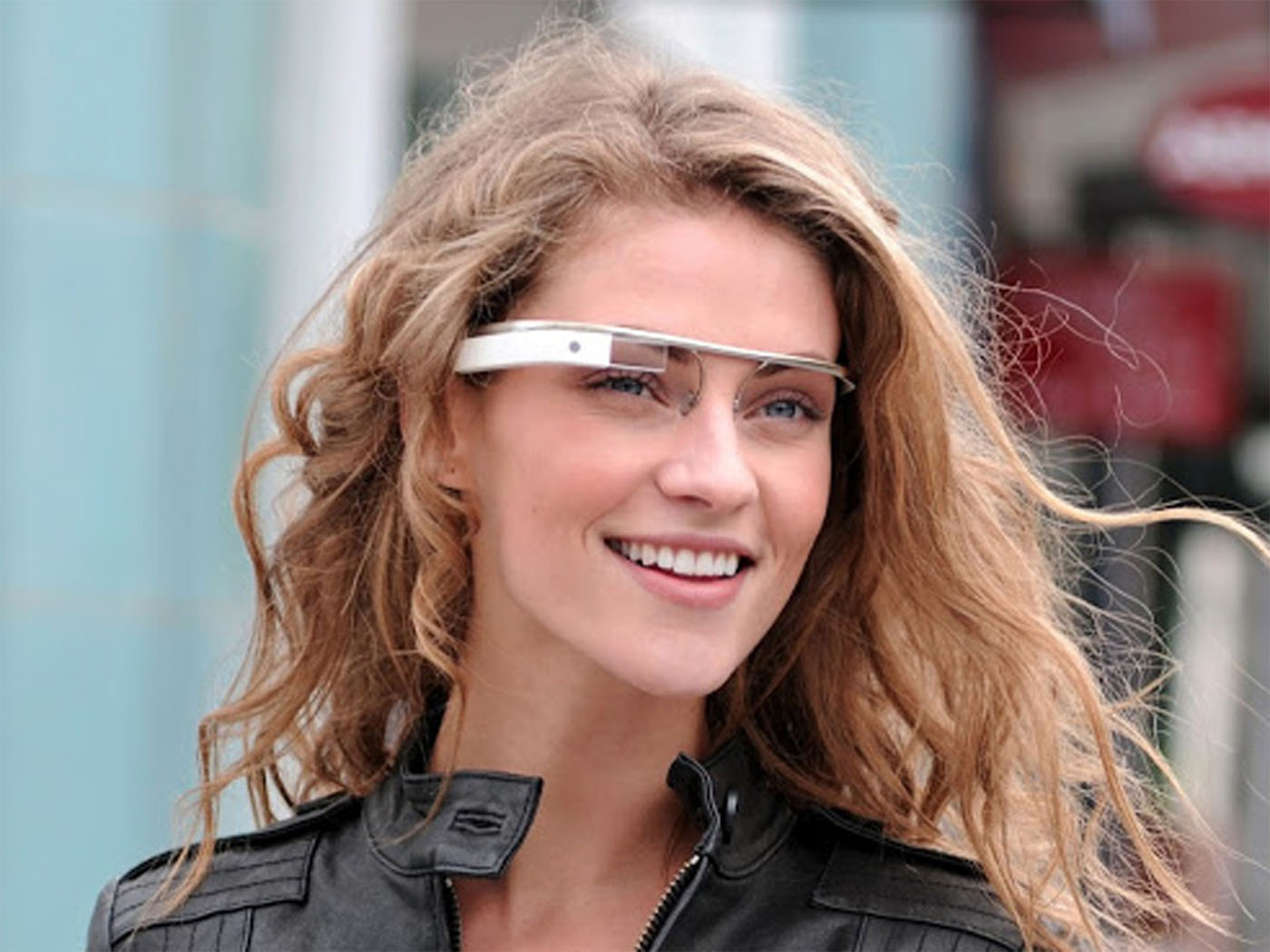
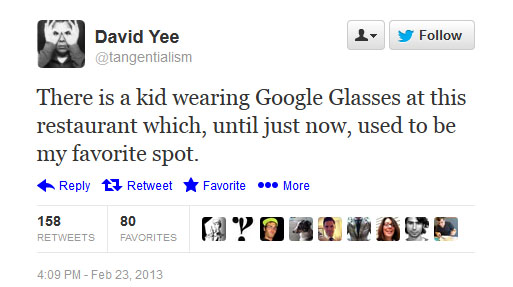

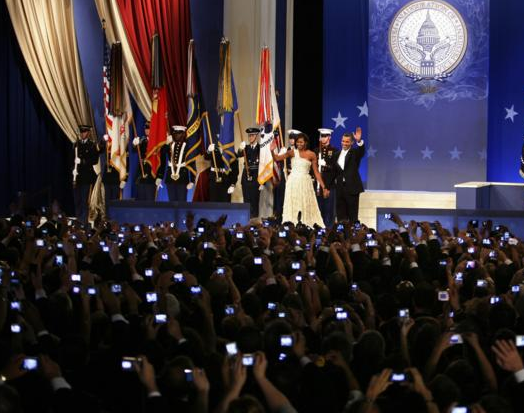
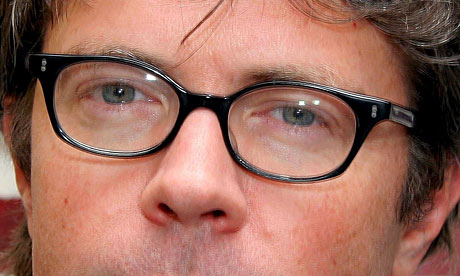


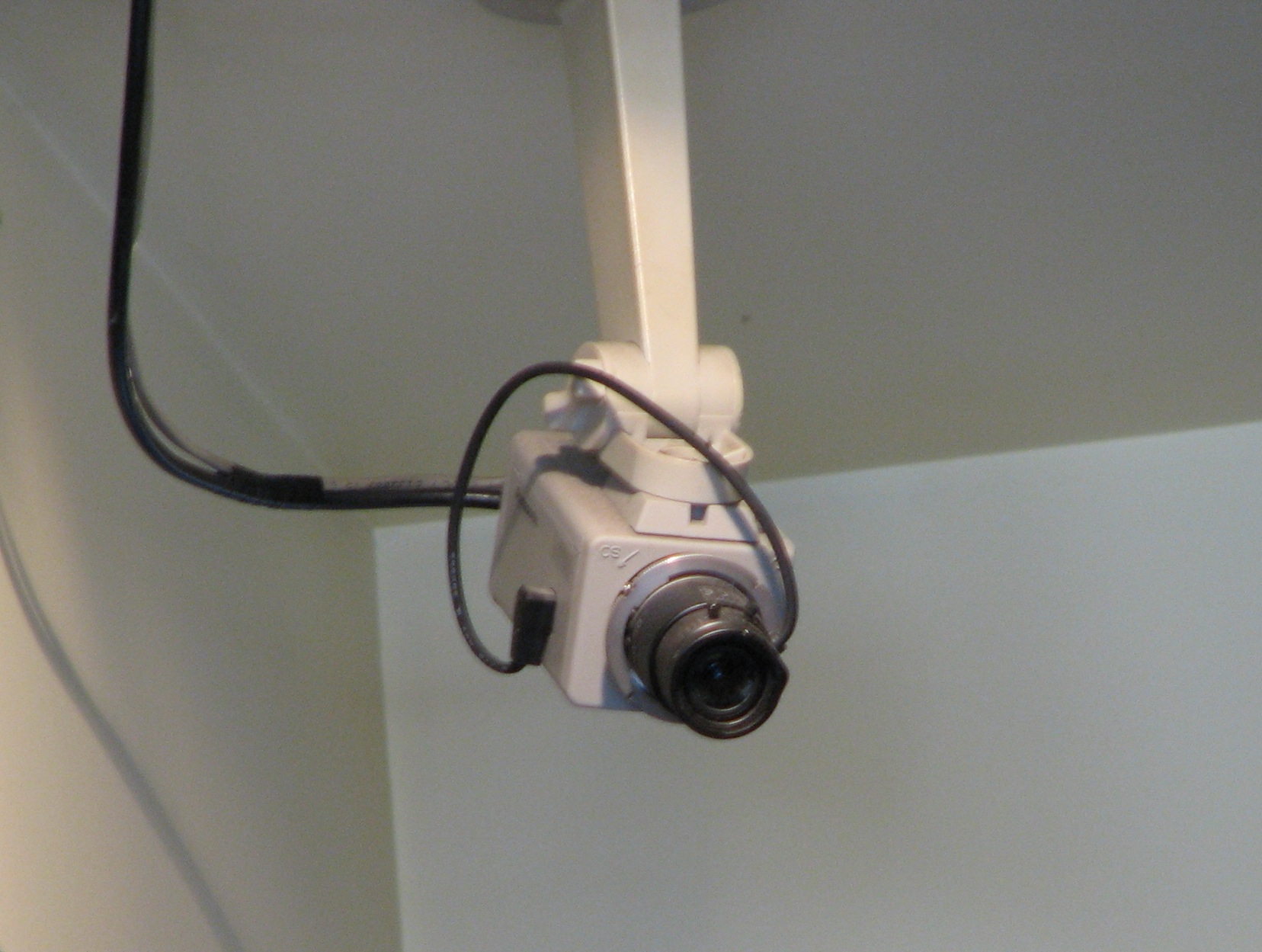
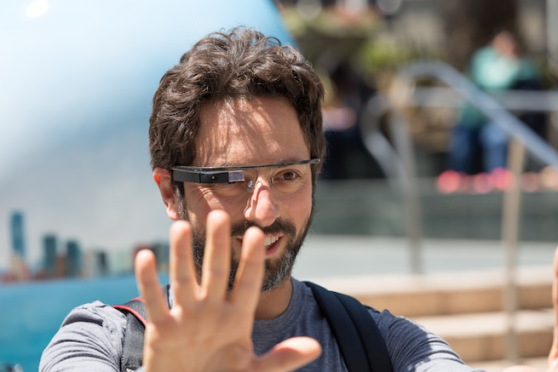


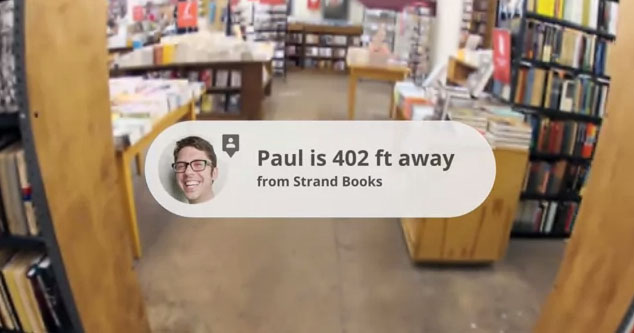





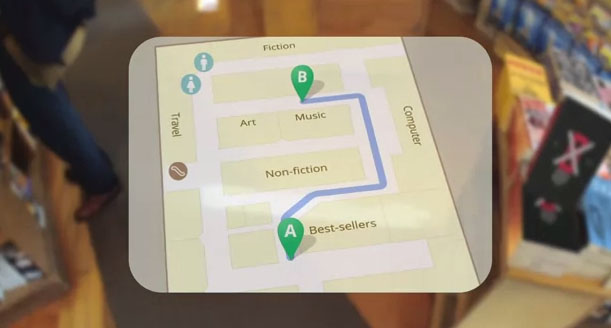
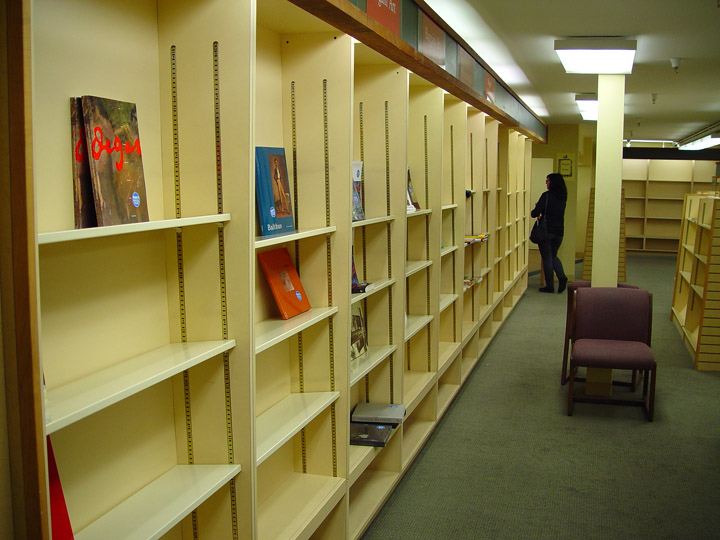
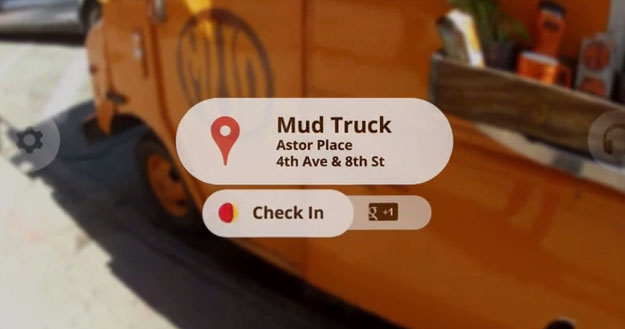

I don’t have much to offer on the subject as you managed to cover it so thoroughly, but I will say that this is the most complete, concise, and clear-headed appraisal of the problems that Google Glass presents that I’ve read thus far. Thanks for writing and posting it.
One argument for: its utter inevitability.
Sounds like you need to stop reading Sergey Brin’s PR and go reread late-1990s David Brin’s “The Transparent Society” and the gargoyle bits from early-1990s Snow Crash and whatever Steve Mann has written over the last N decades of being a guy with a camera on his head. You’ll probably STILL have 35 arguments against Google Glass, but they’ll be deeper grumpier arguments.
[…] Warby Parker style horn rims. And something so inherently dorky and invasive is fertile ground for Internet jokes. It should be noted that a lot of tech nerds can’t wait for […]
[…] Glass, the much heralded wearable computer eyepiece, has yet to be officially launched, yet thehysterics against its use have already begun. The device can, among other things, be used to snap photos […]
“So if you decide you don’t like homeless people in your city, and you use this software and implant it in your contact lenses, then you won’t see them at all.”
Now this is AWESOME! I would probably hide so many people that I would find myself stumbling into invisible pedestrians while walking through the city ;]
this is the most TLDR article ive seen in my entire life.
not that i agree with the glass, but it’s an inevitable thing that’s going to hit the market. i will not be buying them, but holy fuck, you are clearly really worried about them. chill!
[…] In an amazing post Edward Champion describes a whole Thirty Five arguments against Google Glass […]
“this is the most TLDR article ive seen in my entire life.”
That is the most anti-intellectual comment I’ve seen in my entire life.
Bill Stewart: I do need to read more David Brin. Thanks for the reminder, although grumpiness is not necessarily an ideal for me.
“Jobs believed that the iPhone was for everyone. For Brin, Glass is for a privileged elite.”
I stopped reading right here.
iPhone FOR EVERYONE????
Come on…
[…] a possible connection between Google Glass and California Penal Code section 632. It turns out that Edward Champion has done exactly that. In a March 14 list of “Thirty-Five Arguments Against Google Glass,” Champion included […]
[…] […]
If you want me to take your article seriously, rather than a biased flurry of ignorance, at least represent the other side of your argument with some respect. When you thought to insert every “uh” in Sergey Brin’s quote, surely it crossed your mind that you were doing so only to brew hatred and scorn for your opposition. This is no different than those annoying political ads that come in the mail featuring unflattering photos of opponents in the middle of speaking a difficult word.
re: Argument Five – it is SO beautifully appropriate that you use the Prisoner pic for that! in the second to last episode (“Once Upon A Time”) that is the explicitly stated reason for why he resigned:
“Too many people know too much.”
(it goes by so fast that you can miss it if you’re not paying close attention but it’s in there!)
Welcome to The Village.
Be Seeing You!
😉
#36: Teenage girls think it’s stupid.
Kiss of death, actually. What people forget is that Steve Jobs designed things with 15 year old girls in mind. Engineers, almost always male, are constantly designing geek toys for other geek boys, and are shocked and appalled when nobody gives a shit.
Revolutions are always driven by the young and young at heart. This doesn’t cut it. This is an old dream for aging men.
These are all terrific arguments, Ed, and I appreciate your leadership on this.
By the way, for me and other people who have the kind of motion sickness I have, I am pretty sure I would become violently nauseated with minutes of wearing them. I get sick when I read or look at any kind of text (except, say, subway ads) in a moving vehicle, go to 3-D movies, see other films with hand-held cameras, and wear any kind of glasses, like the kind that play movies.
No need to stop their use. Just make it mandatory to have a person walking 25 feet in front of the wearer waving a red flag.
That worked well the last time around – NOT.
The most likely ally in fight against Google glass could be the rich and powerful. Because who have the most to hide?
http://www.theverge.com/2013/3/14/4103184/romney-prouty-47-percent-video-new-politics-of-privacy
[…] Gratifyingly, there seems to be a small backlash brewing against the evil device from that Eighties And Nineties Movie…and a nice list of problems with them is pleasant reading here. […]
Going through the argument, after reading a list of the points and being curious about some of them, I can’t help but feel that it lack intellectual honesty. While it does have some valid points, any new technology has caveats, there are others that use unreasonable extremes or simply make no sense at all. And as Ken remarks above when discussing the quote that opens the article, it employs some underhanded moves that detract from the point.
So, in no particular order, some points I disagreed with:
ARGUMENT FIFTEEN
It will discourage kindness and respect.
Let’s start with the fact that the Creepy Cameraman is a response to the surveillance state that your whole argument decries. He is actually arguing for you, you shouldn’t be trying to demonize him. The thesis behind his actions is that the cameras everywhere should bother us more than they do, and he presents his argument by taking it to the logical extreme of putting a camera in your face. “If this bothers you, why doesn’t the camera in the corner taping you all the time doesn’t?” he asks. He isn’t justifying his actions, he’s calling attention to what an affront to personal privacy the multitude of cameras everywhere are.
Instead you’ve taken his actions and removed the context in an attempt to fill space, pretending that there is any risk that people in general would behave the way he does.
Even your comment about how the girl being arrested (actually being ‘escorted’ out of a mall by security, not arrested) cried and he ignored her is twisted. He actually paid her more attention than any of the camera-less people in the mall did, most of whom the video shows to have simply looked the other way. The cameraman was the only person paying attention, and you can be certain that the presence of his camera actually encouraged security to treat her far more gently than they would have otherwise, for fear of any mistreatment being reported.
ARGUMENT TWENTY-SEVEN
It will discourage people from seeking unfamiliar viewpoints.
This one is barely related to Glass, and even then only by linking it to a technology that doesn’t work the way you claim. The argument goes that Google Hangout lets you block people from sharing their ideas, Hangout will eventually reach Glass, so Glass blocks people’s viewpoints. Now, we may be thinking of different Google Hangouts, but what I’ve seen is that Hangout is a video conference service.
Yes, like any other communication tool, you can block users. You can ignore people in chat, mute them in a phone call, and tell them to talk to the hand in person. If you choose to do so, however, why did you invite them, and why did they attend? Hangout is inherently a collaboration tool. When you prevent others from collaborating, you are wasting people’s time. The existence of a mute button is necessary, it’s abuse is stupid. But this has nothing to do with Hangout in particular, nor with Glass. While the filter bubble issue is a problem, they’re not a problem inherent to Hangout or Glass.
ARGUMENT TWENTY-SIX
It could prevent people from discovering themselves.
If you are close enough to an outlet to keep your Glass charged, and have access to a wireless high-speed internet connection, you’re nowhere near “lost”, in any sense of the world.
ARGUMENT TWENTY-THREE
It could make you more willing to believe lies.
I’m confused by this one. The only way social pressure could be increased by usage of Glass is if you had a bunch of friends on a call constantly, and they had the time to comment on every little thing that happens to you. If anything, Glass would make it easier to fact-check on the spot, by simply saying “Glass, google such and such” and then continuing with what you were doing while Glass brings up the relevant information. If anything, it’ll do the opposite of what your argument claims.
ARGUMENT NINETEEN
Cool places will be outed by boors.
For someone who claims to be against elitism, I found this one pretty hypocritical. The idea that a place is better if it has good service but few people know about it. Maybe the owners would welcome having more exposure and income? Is something tarnished because more people can experience it? If something is good, whether ‘boors’ know about it or not should not be a concern. The greatest problem would be going there to find they have no more room for you. But a crowd attracted by some posts on the internet would quickly move on to a different ‘new discovery’ anyway.
And in any case, how does Glass factor into it? This effect would happen even if they had a strict “no electronics” policy in place, and people simply shared their experience when they got home or talked to friends. Word of mouth was the first ‘social network’ we had, and this effect you mention has tormented elitists since the dawn of time.
ARGUMENT FOUR
It is remarkably easy to steal a pair of glasses.
This is hardly an argument against it. Also, no it isn’t. Getting a hand up to someone’s face is not something that can happen without people noticing. Most pickpockets would go for the phone in your pocket before the Glass on your head.
ARGUMENT SEVEN
It may increase violence.
Funny that you should feel such concern for Glass users, whom you seem to hold in such low regard.
There are a few more, but overall the gist of the argument seems to be “People having cameras at all times is bad”. And even this simple argument is suspect, since the current state of affairs is “Only people in positions of power have cameras at all times”. The proliferation of mobile cameras has actually led to police in several places to be held to a higher standard of behavior, which actually helps everyone. Cops that are being taped are cops that won’t be taking bribes, or harassing people, or being needlessly violent.
But that aside, that wouldn’t be an accurate description of people with Glass. Yes, it has a camera, but ignoring the fact that the camera would eat up the battery and storage space like crazy, making it impossible to keep it running constantly, most users won’t care to be using it all the time. There are more interesting things to do than tape everything around you, as evidenced by the fact that cameras on smartphones are an afterthought, not the main point of the devices.
In fact, you argue that Glass is bad because people will be invading everyone else’s privacy constantly, and at the same time complain that they will be self-absorbed and ignoring what they don’t want to see. So, which one is it?
Juan: Thank you for your comment. First off, I was reporting Brin’s answer to the Wall Street Journal accurately. I don’t see how that’s intellectual dishonest, especially since I was working from a video and there was no text counterpart. But onto your points:
1. Argument Fifteen: How am I demonizing the Surveillance Camera Man? I note that it could be performance art. I note how he could be presenting himself as someone who is dehumanizing others to offer commentary on what you and I agree are the beginnings of a surveillance state. (See Argument Two.) I also write that “it’s one of the most mordant commentaries on 21st century life I’ve seen in the last six months.” You also missed the parallel I made to Kitty Genovese, in which people merely stare at something terrible in front of them rather than come to the assistance of that person. It is dehumanizing enough to do nothing. It is even more dehumanizing to film someone and not offer help. However, you are right to point to the camera as a weapon of self-defense. It proved invaluable to exposing numerous police brutality incidents in 2012. (And I wish to point out that this article is also pro-smartphone, in large part because one can clearly see how distinct they are from the body. See Argument Thirteen.)
2. Argument Twnety-Seven: You are right to point to my concerns as behavior-based. But because Google has built a mute button in their interface (one that you won’t find on Skype), the technological choice in their interface is clearly designed to reinforce behavior and should be considered. Several others have used Hangout as a conversational tool, some of which involves strangers. There is also a “Report Abuse” button, which could also be used as an over-the-top deterrent against unfamiliar viewpoints or annoying people. We’ve all experienced this in real world party situations, but sometimes patience and tolerance and listening is rewarded — in large part because there is no “block button” in the real world. This could change with Google Glass.
3. Argument Twenty-Six: I’m talking about the self-discovery that emerges when you disconnect yourself from the Internet for a long period of time: possibly going for a long walk or hanging with friends or the “unplugged weddings” described in Argument Twenty-Four. Read Solnit’s book.
4. Argument Twnety-Three: You’re unwilling to believe in an argument demonstrating scientific basis for conformity? Twenty years ago, we didn’t have fMRIs capable of mapping areas of the brain. If we have data that upholds Solomon Asch’s findings about how people are willing to believe lies and we have a device that will alter our perceptions and stimulate these brain areas, surely this is something not to be ignored, yes?
5. Argument Nineteen: You are right to suggest that the decline of certain establishments is inevitable and that nothing lasts forever and that “word of mouth” has always existed. But how is it elitist to protest privileged people who invade an innate subculture and use their power (affluence and technology) to take it as their own? It should be a concern when a particular class of people — such as those who can afford a $1,500 pair of glasses — are allowed to have opportunities that regular people cannot and that Google reinforces with its dominating market share. Here’s the difference between “word of mouth” and Glass. When people of all classes became aware of a happening place, they knew, once they were introduced to the place, that they needed to remain quiet about it in order to preserve its character. If they blabbed to everyone that day about it, then it would be discovered and its character would be changed. (This happened to a cafe I used to enjoy in Brooklyn when an author talked it up to the press and it became swarmed with entitled people who did not recognize the cafe’s character and continuity with the neighborhood’s history, much less the eclectic bunch that assembled there, which soon bolted because of the invasion. The cafe where I now meet with fellow writers remains top secret, for the justifiable concern that this cafe’s character and eclectic group, which permits free-flowing conversation with all who come in and collaborative writing, will change.) But if they kept it to themselves, then it could have a healthy lifetime. Geotagging and Yelp have certainly altered the landscape, but we’re not recording nearly as much information as we will in a Glass world. To take your other example about a crowd “moving on” to a new discovery anyway, this also applies to the cafe. Once a cafe has been “discovered” and ruined, there is the distressing phenomenon whereby a cafe is shuttered because it can’t woo back the clientele that abandoned it. You may very well view this as one of capitalism’s hard knocks, but I find this to be quite sad. With a little respect, establishments can last longer.
6. Argument Four: Watch the great Samuel Fuller film PICKUP ON SOUTH STREET and you’ll see how very easy it is indeed. 🙂 If something is of greater value, criminals will find a way to steal it.
7. Argument Seven: I hold a great concern for humanity as a whole. And seeing good people reduced by a technology greatly worries me.
As I said above, I fully agree with you (and wrote about this when I covered Occupy Wall Street) that cameras have led to bad police behavior being exposed. But keep in mind that the police will get their hands on Glass too. They are already using body-mounted cameras, which have created a smorgasbord of interesting problems:
http://www.nytimes.com/2011/10/12/us/police-using-body-mounted-video-cameras.html?pagewanted=all&_r=0
http://www.lasvegassun.com/news/2012/may/07/police-union-threatens-legal-action-over-metros-de/
http://www.npr.org/2011/11/07/142016109/smile-youre-on-cop-camera
You may be right about battery life, but technology (and those who use it) will figure out a way to solve these problems. (Indeed, Tim Pool was able to record continuous video on his camera by using an Energizer XPAL.) Consider also the decline of the film and TV industries. If we see the entertainment market entirely driven by user content (with the compensation concerns I present in Argument Thirty-Three), then, for some people, there may NOT be more interesting things to do. To address your final concern, it helps not to have a black-and-white view of humanity. I’m certain there are many behavioral gray areas which will be revealed as devices such as Glass are rolled out over the next few years.
Thanks again for the response.
PLEASE SHARE ‘SURVEILLANCE STATE: An Investigation of Google Glass’
35 problems and nobody mentions myopia.
Most techies need corrective lenses, so how will that work out with this contraption?
Also, there is the issue of eyesight deteriorating. This is a very unnatural thing we’re doing to a fragile organ.
Just on a side note:
The consumer version will *not* cost $1,500. That’s just the price of the current developer version.
The people who can’t wait for these things have no idea of the hostility & violence they’re liable to encounter. Once the general public knows the wearers could be taking video of them, it’s going to get ugly! I for one am very likely to verbally confront anyone I see with these. Just the thought of them makes me angry. This is instantaneous and visceral.
It’s also an evolutionary dead end. I can’t imagine how a species that still doesn’t use most of its brain could clutter up its senses with unncessary information and advance in any meaningful way.
Specialized usage, sure. But for a general consumer item? No way in hell.
Decent article until the end when the writer hypes Steve Jobs and the iPhone. Glass is no different than a person walking down the street looking at their iphone. They have the same capabilities and the same downfalls.
Well researched article. Google might encounter massive legal problems in other countries with that gimmick. Some countries in Europe are very keen on privacy, and most people hate being filmed, eavesdropped or photographed. For sure a few noses will get broken and googleglasses trampled to cinder.
[…] Thirty-Five Arguments Against Google Glass […]
Of course the biggest argument against is for those people who’s eyesight is poor. A voice activated visual computer isn’t going to be much use to them.
But then, Google have never been good at accessibility, it doesn’t even exist on Android by default, you have to download it.
[…] addition, bloggers are debating the influence of augmented reality spectacles on everyday life. Blogger Ed Champion wrote up 35 arguments about the gadget saying it could force all kinds of unwanted changes. He warned it could stifle the […]
Since we can already do everything that glass can do (and much more) with a standard smartphone, its hard to argue that these points (maybe apart from #13) apply uniquely to glass.
This is steeped in interesting social critiques but I think you hugely misunderstand the way these technologies (already) work. Point 21 for instance – Google Latitude has been around for four years now, and you have always had the option to hide your location permanently if you wish. Glass is clearly going to use the same technology – so where’s the evidence for latitude being a detriment to society, aiding “stalkers” in the way you describe? To be honest I’m not keen on the idea of people using Glass constantly. Not at all. But arguments like #21 are more than a little misguided.
[…] addition, bloggers are debating the influence of augmented reality spectacles on everyday life. Blogger Ed Champion wrote up 35 arguments about the gadget saying it could force all kinds of unwanted changes. He warned it could stifle the […]
[…] addition, bloggers are debating the influence of augmented reality spectacles on everyday life. Blogger Ed Champion wrote up 35 arguments about the gadget saying it could force all kinds of unwanted changes. He warned it could stifle the […]
Please move argument 34 to a front position! Some years ago a van driving in front of me lost a bicycle from a hook which landed right in front of my car. I was lucky that I had kept enough distance. The van didn’t stop although I honked and signaled. When I finally managed to pass and stop it, I found the surprised driver on her cell phone.
In many countries use of cell phones while driving is forbidden, but that seems to have no effect as it is hard to check. This problem will be much worse with Google Glass. Unfortunately, the cell phone problem has shown us that you cannot trust in people to show enough responsibility. I hate to imagine the consequences…
(Cyborgs may have enough CPU power for the necessary multitasking, but humans don’t!)
You want a good reason for google glass ? Police brutality.
Ever since smartphones, cops have been caught doing stuff from 30 different angles, like in the MET murder of a black guy.
You are just making up specious arguments to back up your opinion. Yes we get it. You don’t like glass. Good, don’t wear it.
As far as getting recorded in public goes, duh, its public. We can already record everything secretly with a well hidden smartphone.
If you want privacy, *then be somewhere PRIVATE*. Lol, expecting privacy in a restaurant, movie theater etc is stupid.
Most of the defences of Google centre on the, almost offended, declamation: they would never do that. There is no real explanation of why Google would not do it.
Nor is there any recognition that, for all the claims of “openness” it is not Google that creates the content. So why should I tolerate my life being monetized when I can hardly make ends meet?
Perhaps criticism number one should read: glass is theft.
I got half way down this article before getting a sense that the writer has missed the last 5 years of social networking and online privacy abuse.
Ultimately the vast majority of your 35 points are already very true and down to the user not the tool.
1) The Metadata issue is already very true of Android/Google+ and Facebook.
2) Your own point 15 makes clear that smartphones have already made this possible.
3) As you point out, this is hardly a new frontier breached by GG.
4) People will go from stealing handheld computers (with phone apps) to stealing headsets (with phone apps). It’s not like stealing smartphones is hard, as your stats show.
5) To be honest, Google probably already has most of what it could use.
6) True of phones since they had cameras. If you’re willing to screw someone wearing GG, you’re willing to be videoed on a phone whilst having sex.
7) Already true of phone cameras, as the happy slapping craze has proven.
8) This is interesting and I accept it as a valid point – how and why people behave fascinates me.
9) This is interesting, but the science on cancer from non-ionising radiation is weak. WHO rates phones as no more carcinogenic than coffee IIRC.
10) Phones, computers, networks have all done enough of this already.
11) Already true of smartphones. Lose your smartphone (without making it a challenge to unlock) and someone can get into all your email accounts, use them (and SMS confirmation codes if necessary) to reset your passwords elsewhere and go shopping.
12) This is arguably more of a social network issue and as you state is already true of G+ (and Blizzard’s Battle.Net IIRC). A problem? Or a tool against cyberbullying? So far mainly the first, but to be watched.
13) GG is hardly covert surveillance gear though.
14) So they can already get everything from your phone? Then what difference does it make?
15) If you’re an arse with GG, you were before. Also see arg 2.
16) I call bullshit on this. Art and especially comedy has been getting consistently more extreme and rude for years, more fuelled than choked by cameras.
17) Multi-tasking : no-one pulls out their laptop in cinemas. Nothing major to fear (though might hark back to arg 7)
18) True of smartphones already.
19) As true of Foursquare, G+ and FB without GG as with. Looked at the other way round, the owner of a genuinely good dumpling place gets to make more cash, you know, from their hard work in making a good product.
20) True of smartphones, accept that GG may well make it worse.
21) Must admit I don’t know enough to be sure how much this changes from current “check in” systems. It’s not like you’ll need a feed to spot your stalker target at a restaurant, you could just, you know, look for the person wearing a GG headset. Or their face.
22) Not really convinced GG will make this worse.
23) Seems like a slightly excessive extrapolation.
24) Little will change. See arg 15.
25) After half a dozen readings, I’ve still no idea what your point here is. The Streisand effect is alive and kicking if “that” photo of Beyonce at the Super Bowl is anything to go by. FB, Twitter, 4chan, 9gag, and a plethora of others ensure that.
26) Doesn’t seem any different from TV really. What crazy adventures would we have if we didn’t sit down on the sofa for hours? Your point?
27) Already very true, welcome to the internet.
28) So is your phone. But like you can put a phone down you can take your glasses off.
29) Oh please, FB does this already. GoPro cameras and video sharing have shown me all winter how much skiing I’m not doing at work and how much I’d rather be backpacking in Thailand.
30) Online retail destroys brick-and-mortar shops and eliminates the need for competent, trained, passionate staff. True ever since Amazon started turning a profit.
31) Ditto.
32) Ditto.
33) Very true. Equally true of Apple (see your arg 11) and to a lesser extent FB.
34) True of smartphones. Could equally be a benefit though. Note that a lot of the top end car manufacturers are incorporating more and more HUD features in new models.
35) With respect, the second half of this appears as really just a passionate eulogy for Steve Jobs and a pointless personal attack on Brin. So Jobs is a better PR merchant? So? So the GG might be more of a premium product than an iPhone? So?
As for “deleting” the homeless, we all do it already. Frankly anyone who’s spending $1500 on a wearable computer is already (to some degree) blind to them.
“if you don’t like it, don’t wear it” fair enough.
I thought it would be worth pointing out that like all other tools, Glass is just that. How people use it is up to them, your beloved iPhone tracked people, it is up to humanity to choose what we do with these technologies, and how we interact with them. Money is used all over the world to finance horrific acts, and also perform humanitarian operations.
Its a tool, if you want you can turn off all the tracking and other tech on your phone, soon enough this will be the same for Glass.
Also smacks a little of AstroTurfing….
You make some valid points. Actually, many valid points. Most, if not all of your points COULD happen.
However, most of your points are faulty because it is putting all of the responsibility and therefore consequences not on the user, but on Google.
You have no basis to use the idea that the Glass user won’t be able to get “lost” as an argument against Glass. It is not an argument against Glass any more than it is an argument against a cell phone, computer, gaming console, tv, etc.
You are trying to make Google adhere to this discipline to keep people in check, instead of holding society to a higher standard. If you think it is a problem, it isn’t a problem with Google, but with the people around you.
Someone might film something they shouldn’t? It isn’t at the fault of Google for making Glass, just as it isn’t the fault of Apple for making the iPhone. You feel it is Google at fault for distancing people from the real world? Again, it is the user’s fault for soaking themselves in that world too much.
Anything we have in this world can be misused and abused. It doesn’t make the object wrong automatically, but rather puts a much greater responsibility on the ones using it.
This article should be renamed “Thirty-Five Arguments to Test whether you are ready for Google Glass”.
If you disagree with my method of logic, then I ask you a question. If the responsibility is purely on the manufacturer to judge whether there is any significant percentage of its user base that will misuse its product, then why aren’t you fighting as diligently to remove from society tobacco or alcohol use as you do to remove Google Glass?
[…] + http://www.edrants.com/thirty-five-arguments-against-google-glass/ […]
This is so funny. Never heard so much rubbish. 90% of the points are more of a complaint against current smart technology in general than a product that hasn’t even been released yet!
For all the surveillance arguments like people having sex in a car; homophobia; bullying; police and Google having more information than they need or we know etc:
First, if you are doing something you will be ashamed of afterwards, perhaps you should not be doing it. So it is great that people will think twice before unacceptable behaviour. In fact, this already works for thieves in convenience stores for example (unfortunately some people still don’t bother thinking).
Second it will show how common some behaviours people are not familiar with (and have prejudice against) actually are, making these more acceptable. We are all humans, we all make mistakes, people may finally get over this taboo. “I screwed up. So what?! Everybody does sometimes.” is far more healthy than “OMG! I am going to suffer bullying for the rest of my life, I will kill myself”
So ultimately perhaps the best fact about the change of mentality this device may help accelerating is: people becoming less paranoid, because: 1) it will be clear that s… happens, with everyone; 2) information will be really out there for everyone (not just the intelligence agencies) preventing stupid conspiracy theories
And here are a few more you didn’t think of:
36) Pedophile Paradise:
It will give pedophiles a foolproof way to take photos and videos of children in public, without raising the suspicions that would occur from using regular cameras or cellphone cameras.
Pedos will also be able to face-match their targets’ parents, potentially finding out where they live, work, and go to school. Do you want these creeps to have an easy time finding your house when your pre-teen daughter comes home after school and you’re still at work?
Legally, any image of a child can be child pornography when it is used for prurient purposes. How would you feel about a video of yourself and your child, walking down the street, or even inside a toy store, being used by pedophiles for their “entertainment”, and perhaps being posted to their networks around the world…?
37) Terrorist tool:
In the airport, on a bus, train, even on an airliner: any place where terrorists would like to have detailed photos or videos of security measures or potential vulnerabilities, but using a regular camera or cellphone camera would lead to getting questioned.
Consider bombs designed to “blend in” with elements of the architecture or parts of the vehicle’s interior. Consider terrorists learning the appearances, behaviors, and actions of authorized persons in these places, the better to disguise themselves and gain access. There are other scenarios I won’t post in public, but they are many and they are serious.
38) Robbers and muggers and thieves, oh my!:
Shoulder-surfing people who are using ATMs. Casing the interiors of banks and the exteriors of houses. Scoping out the actions of potential victims. Real-time networking with accomplices to coordinate actions. All of this without raising suspicions, and all of it conveniently hands-free, the better to hold a weapon in one hand and grab the loot in the other.
39) The new second-hand smoke:
How would you feel about someone blowing smoke in your face on the sidewalk or in a restaurant? We limit where people can smoke and we regard it as rude to smoke where it would bother others. Not because an occasional face-full of someone else’s smoke will kill you, but because it’s rude as hell to impose upon others without their consent.
Involuntary photography is the new second-hand smoke. The difference is that you can go home and wash your clothes to get the smoke off, but your unwilling photos on the internet live forever.
40) “Oooh shiny!” is not a moral imperative:
Bottom line: Privacy, common freedom, and public safety, are more important than shiny toys. This is not about Luddite anti-tech attitudes, any more than a ban on auto racing on Main Street. “I want to drive my shiny new car as fast as it can go, everywhere” is not a compelling case to put the public at risk.
There are toys that are too risky for people to have. Howitzers and main battle tanks are cool technologies with clever mechanisms that would be fun to play with, and no doubt it would be exciting to make nitroglycerin at home or build a DIY nuclear reactor to power your house. But, no, you don’t get to do those things either.
Learn to live with it, just as you learned to live with it when your Mommy or Daddy said No in the toy store. Children throwing tantrums in toy stores are unpleasant enough; when grownups do it, it’s downright pathetic.
“Yet David Pogue — arguably the most unimpeachable journalist who has ever worked at The New York Times…” –Argument 34
A truly herculean effort (paid by the word much?), but this line gives away the game, Ed. You cannot impeach your own authority and still conceal the tongue firmly planted in your cheek.
The satire of your article has apparently been lost on your loyal readers… (unless you’re deleting comments such as mine, which I suppose is fair enough–it’s your blog!)
While I agree with the great majority of your points, Google Glass will still have its merits for recording things from a human perspective, making it great for recording Sports and the Arts from a performer’s point of view. You may call it digital boasting, but I think we should see it as an innovative way to explore other people’s talents and hobbies.
Also, I had to laugh when you started to eulogize the iPhone as ‘the phone for everybody’. With a price tag of 800 euros its the most expensive rip off of a phone I’ve seen in a long time. That, and it has managed to amass a pathetic consortium of fanboys to buy each and every new overpriced minor upgrade produced… and don’t even get me *started* on the iPad/iPad mini.
Up until the Glass, Google has done pretty well by providing phones with essentially the same functionality as iphones, at a fraction of the price, and although some of your fears may not be misplaced, a lot of your later points are happening already – without the influence of The Oogle Glasses.
We have a cinema chain called Vue Cinema, and I recently found myself at a mall with a few hours to spare and considered going to the cinema. So I went along to the cinema to see what they had showing. This is a 16-screen multiplex cinema showing a variety of films but the surprising thing was there was literally nothing in the foyer or in the cinema to tell me what any of the films were about. They had a board that listed films by title with their show times and nothing else at all, not even a rating to show whether it was an adult movie or a kids cartoon; just the title and show time.
Feeling unable to make a choice based on so little information I went bowling instead. When I got home I looked up the cinema chain on the internet and found the Feedback section of their website and sent them a comment that the delivery of promotional material to this branch of their chain had been overlooked and they might like to do something about it. Their reply said that they do not have promotional material at point of sale. If anyone wants to know what the films are about they can use the website to review these details.
From your blog I thought this might appeal to you as an example of how ubiquitous technology has become to the point that it is now considered acceptable for a company to have a policy that they will not advertise or promote their product at the point of sale because that information is available elsewhere. I don’t have an iphone, so being able to check their website on the go is not an option for me so I equate their approach to a supermarket with shelves full of unmarked tins. Plain white labels saying, “Buy me: £3.50” with no explanation whatsoever of what the product is because I can look the barcode up on the web to find out.
More than simply a statement about technology and the uses we put it to and the ways in which we can let it run our lives for us, I see this as a statement about how companies view their customers. It’s almost as if they are saying that they no longer have to “sell” me their product. I am not there to be lured into their business and “sold” something, or even offered information upon which to make a choice, I am only there to buy, and as long as I hand over my money they don’t really care whether what I bought was what I wanted. I would like to think that companies that treat the public with such disdain will go out of business, but I suspect that the sheep will win and I shudder to imagine what the sheep fold will look like in the future. It will almost certainly have a Google logo on it.
[…] Thirty five arguments against Google Glasses […]
I’ve never read so much crap in my whole life. NONE of the arguements stand up to any scrutiny.
It is perfectly legal to be photographed in a public place. It’s public FFS! If you don’t like it, go somewhere private.
And as for the example of sex in the car – don’t have sex in public durr!
Google glasses have the potential to be an amazing tool to massively enhance your quality of life, as well as providing a stream of video evidence that you can use for your own and (if they want it) others’ protection. It helps to hold the state to account, and will reduce incidents of malpractice by authorities
[…] Update: Ed Rants has just done a cracking article on this here. […]
[…] of day, I can tell you. So what are people afraid of with Google Glass? While Ed Champion has some pretty good reasons for why it might be a less than wonderful addition to the human experience, many people (okay, a […]
Elegantly phrased stupidity.
The only that I can find applicable in some fashion are
13 It isn’t distinct enough from the body,
18 It will create problems with consent,and finally
34 It will make driving dangerous.
The most stupid of all is 19 Cool places will be outed by boors.
“We will keep our cool joint hidden from the stupid hipsters”
I will not answer to any of these individually, I find them biased at least, I will say that 34 is a real IRL danger but almost all others are things already happening, and guess, you cannot blame the maker.
I agree that those things probably will become easier, but I don’t believe that a pair of glasses will make someone to do something that he is not already doing by other means or has the tendency to do.
I you want to take nude pics for extortion for example, you can still use a kodak, but you cannot say “kodak made me do it”.
To the author: Grow up and stop scaring people.
I think I disagree with about 34 of these. Link bait. Also, you sound like you’ve been living under a rock for the past five years, most of these “arguments” could be used against smartphones.
Interesting article, but what the hell is with the Fringe spoiler? If you’re going to tell people how a show or movie ends, how about a “spoiler alert” first?? Not cool!
[…] addition, bloggers are debating the influence of augmented reality spectacles on everyday life. Blogger Ed Champion wrote up 35 arguments about the gadget saying it could force all kinds of unwanted changes. He warned it could stifle the […]
[…] Thirty-Five Arguments Against Google Glass. […]
The most important thing that comes to mind, is that all the things you mentioned already happen without this new overpriced and ridiculous gadget. All examples are of already existing situations & experiences.
So how can I deplore a product that was depicted in movies years ago on these?… just because the society doesn’t evolve as fast as our technology? C’mon, grow up people.
Ever increasingly, Google is turning into Microsoft and Apple on terms of privacy and counts of making decisions for you! And I want to hate them for it, because they’re the technology companies which services I use the most and want them to stay out of my life… Yet this article only serves as proof as the society is to blame, not technology makers.
GG is NOT something I want to become the “latest fashion”, but you sir make a lousy case against it.
In the last part of this, you seem to praise Steve Jobs for the iPhone and condemn Glass. You cannot make arguments about how this will destroy life as we know it and then show an example where the same type of revolutionary technology has not done exactly that. This is fear mongering, just like Y2K and 12/21/2012. Your arguments are nice, but your interpretations on the future are nothing but subjective opinion. With your sources and legitimate evidence, you created the illusion of intellectualism and then jump to conclusions not supported by your evidence. And I fear most that you will influence malleable minds into supporting your cliche “earth shattering” predictions. Thank you for the entertainment, but I will not drink the Kool-Aid.
[…] we go here? Yes, but beware of and prepare for the costs. An interesting read Thirty-five arguments against Google Glass outlines some potential […]
[…] by Ed Champion, which lists the different reasons why we should not use or accept this product (found here). It’s a very long post, but an interesting skim nonetheless. The following are some of his […]
Would not that be terrible that my assault or murder would be transferred to the Internet.
I protest in the strongest!
As robbers and murderers would need to find another profession.
It may never ever EVER work on the market, you know? There are a lot of devices today that do most of the things you mentioned in this article. I get most of them, yes, but It is a matter of choice, I hope for one we see that this product is… well, technically a piece of shit for douchebags (Hands free bluetooth.. anyone?). Not so much for the danger, but for the pretentious design objectives that this product carries, Less freedom, more liability to a machine. Fuck That. (Says the guy who has been in front of a computer for more than 12 hours).
[…] goes on to identify Thirty-Five Arguments Against Google Glass. The arguments are very convincing, and conjure up a terrifying world where any remaining notion of […]
[…] Fast forward to spring 2013 and the mood music has changed. Organisations like Stop the Cyborgs have generated a lot of press with their message that Google Glass would be an intrusive technology which threatened to destroy whatever shreds of privacy we have left. […]
[…] make an augmented, blended reality any easier. And it’s not like Google glasses will make our lives better, […]
[…] Thirty-Five Arguments Against Google Glass […]
This is a list of “what ifs”. To be honest, do you really think anything useful will become of it? I bet people talked about connecting with others across the world at the speed of electricity was witchcraft and how it could make our brains explode if not used correctly yadda yadda.. what actually happened? We got a lot of teenagers recording their boring lives and publishing it thinking what they eat for breakfast is of importance to others. The same will happen, it won’t be used for hacking the pentagon, you will get a social update every 5 minutes of a picture of someones cat and will end up turning it off.
Another thing, why does everyone care about being photographed or recorded as breaching privacy but are ok with getting looked at? It’s just the same thing as someone looking at you with their eyes, even if they send it to someone else, it’s just someone else looking at you with their eyes. It’s like you have this thing in your head about being violated when in fact the exact same thing is happening when you are standing in line at the super market and some other shoppers look at you. What kind of phobia is it to not want to be looked at?
[…] On the other side we have blogger Edward Champion’s expansive 35 Arguments Against Google Glass2 , many of which, I would argue, are more criticisms of this assemblage I’ve been calling the […]
Where there is a big, and challenging problem that arises due to new technology, there will be solutions, workarounds, and value-creating ways popping up in no time.
We live in a time of true #abundance – and most of all interconnected global, creative-thinking minds
[…] Mas, na realidade, mais interessante ainda do que o advento do Google Glass em si são as reações que ele vem causando. Nos Estados Unidos, o aparato está sendo visto como um invasor da privacidade alheia e, por isso, já foi vetado de antemão o seu uso em determinados estabelecimentos comerciais. Assustados com iminente possibilidade de serem vigiados todo o tempo, os americanos de visão mais apocalíptica criaram até mesmo um site chamado “Stop the Cyborgs” com o intuito de alertar e convencer o público, de uma forma geral, de que o recém-nascido da Google seja uma ameaça à sua privacidade (você também pode ver uma lista, em inglês e bastante desconexa, de 35 “fatores preocupantes” do Google Glass aqui). […]
I’d love to have a BJ from the model at the start of the article and see what it looks like on glass…
How do you sleep at night? If I thought about all this stuff all the time, I would be a nervous wreck. Just roll with it… life is much better that way.
[…] If there’s one thing we should really worry about, it’s that we’ll treat each other differently, and trust each other less, when Glass is around. (A related argument from Edward Champion is that the Glass will discourage personal risk.) […]
[…] If there’s a single thing you should unequivocally be concerned about, it’s which we’ll provide any alternative differently, as well as certitude any alternative less, when Glass is around. (A associated evidence from Edward Champion is which a Glass will discourage personal risk.) […]
[…] -Google Glass isn’t changing how privacy and decorum are regarded. It is simply an instrument that indulges many persons’ tendencies to keep up competitively with others and ignore unpleasantries in their midst. […]
[…] If there’s one thing we should really worry about, it’s that we’ll treat each other differently, and trust each other less, when Glass is around. (A related argument from Edward Champion is that the Glass will discourage personal risk.) […]
Seriously, Google Glass does nothing that existing technology can’t already do. All they have done is reduced the size of any smart phone so it can be worn on the head. Yes it makes things easier and will have a potential to encourage any of the above behaviour but so does every innovation. Cell phones do cause traffic accidents, so do sat navs but we still use them because we are able to evolve with innovation to take consideration of the modifications our society undergoes.
[…] If there’s one thing we should really worry about, it’s that we’ll treat each other differently, and trust each other less, when Glass is around. (A related argument from Edward Champion is that the Glass will discourage personal risk.) […]
I agree with much of the article. However I have hope that this technology will assist future solidarity movements. People hear about the killing and terror and theft of resources that still goes on around the world at the behest of wealthy nations and corporations. Sometimes we see it through the eyes of journalists (but rarely because corporations own so much of mainstream media). But now when activists go to work and live in threatened communities it is likely that any violence will be streaming. I’m sure technologies will be deployed to prevent real time reporting of these atrocities, but there will be cracks, and through those cracks the ugly truth will shine through.
In Yevgeny Zamyatin’s book “We”, he envisions a future society whose members all have numbers instead of names and who live in appartment blocks made of utterly transparent glass, a one-party state of finely-honed Stalinism running the lot, unsuccessfully in the end, of course. Mr Brin probably didn’t get as far as the end of this very short book, so, while we’re waiting for this utopia to fall on our heads, he has given us Google Glass. Such a pity it came too late for the likes of the Stasi, the StB or the KGB! They’d surely have struck a gong in his honour, such as the “Serguei Brin Order of Social Engineering, Class One”. Still, Brin could do worse than take a stroll around the Stasi-Museum, Ruschestraße 103, Haus 1. 10365 Berlin, where he’ll find all sorts of ingenious contrivances for spying on fellow-citizens. But of course, I’m dreaming, there’s nothing to be learned from past generations and it’s such fun re-living the past, isn’t it?
Re: Google Glass and violence
I declare here that if anyone points one of those things at me, they will regret it!
[…] to some, the introduction of Google’s latest product – the Glass(es) – […]
Great article — I’ve shared this article and link with Google+ community entitled “Google Glass: Dangerous Violation of Privacy”. After reading some of the comments — I believe that you’ve done a great job here in presenting scenarios that possibly could happen. Website link is Google+ community mentioned.
[…] Google+ community link through the website field of the comment for reference and invitation. http://www.edrants.com/thirty-five-arguments-against-google-glass/ In the article, I posted this comment Aaron Court May 24, 2013 at 8:20 pm […]
[…] Glass has made its way out of the Labs and into the earlier adopter community, there have been many strident reactions, policies drafted, and hands wrung. People wearing them are being christened […]
[…] There are many more reasons that The Google Glass can bite you back. If you want more reasons and the idea for this article Please visit EdRants by clicking here. […]
[…] If theres one thing we should really worry about, its that well treat each other differently, and trust each other less, when Glass is around. (A related argument from Edward Champion is that the Glass will discourage personal risk.) […]
[…] Google Glass – End of Privacy? […]
So…. this is satire, right?
Because these can’t possibly be seen as sincere and honest criticisms of Google glass by ANY sane person.
But, if the point of this is to point out the idiocy of people who create poorly-constructed and paranoid “what ifs” to justify their fear of new things, then it’s HILARIOUS… and also spot-on.
ARGUMENT THIRTY-TWO
It will create unfair advantages for online retailers.
….. what the fuck ?!?!
[…] obvious way to see who is using one at any point. If you need more reasons to be worried, try this list of […]
I`m sick and tired of hearing “its up to society to decide how to use the technology”. Even governments aren`t able to use technology in a responsible and human friendly way, what makes anyone here think that the uneducated drooling moron public will be any better. The technology for nuclear weapons has been around for 50 years or so now, that doesn`t mean everyone should be able to buy and use one.
[…] We have been hanging around the internet community and tried to understand not only the lovers of the push technology but also the ones that are a bit reluctant to be the first and then part of the Alpha tests. Amongst the few that took the courage to criticize the glasses, I loved the thirty five issues of Google Glasses: http://www.edrants.com/thirty-five-arguments-against-google-glass/ […]
[…] Glass, however, has many detractors. Concerns over a right to privacy have pointed out a number of situations like cinemas and […]
[…] Technophobiacs tend to deny the trend or resist to it, for example by focusing on the dangers of the innovation. They may meanwhile forget that many of the features they dread are common good in other, widely accepted products. Technoforiacs on the other hand, mainly focus on the good, or what Gartner calls ‘inflated expectations’. […]
[…] “Thirty-Five Arguments Against Google Glass” at Reluctant Habits. A contrarian view on the Google Glass project. Or is that a luddite view? […]
I’ll smash every pair I encounter.
[…] critics of Google Glass feel that privacy (especially government connected), legal (including copyright) […]
[…] recording and wether people would be willing to share intellectual property or content for fear of having that idea stolen (from pictures or […]